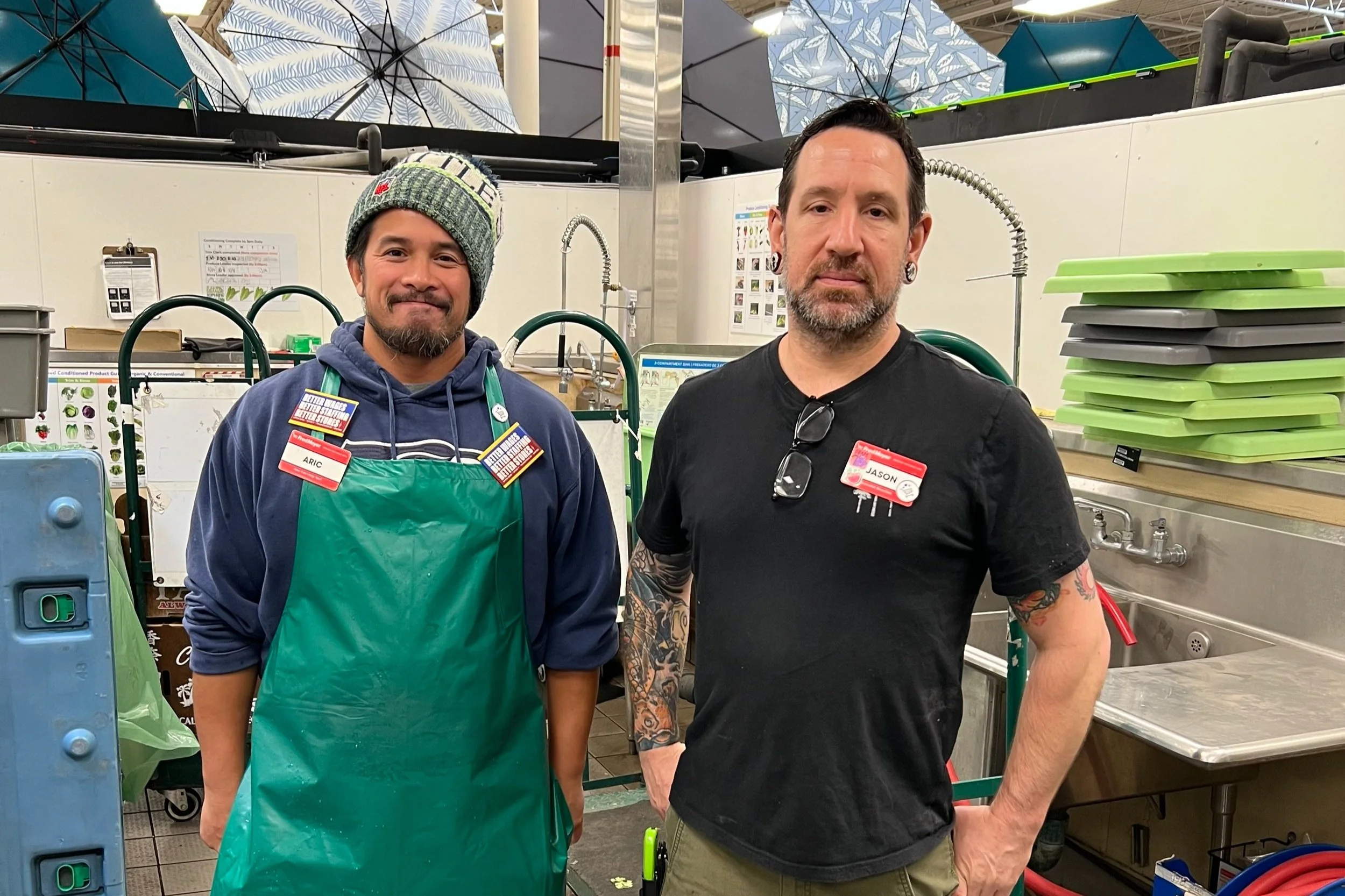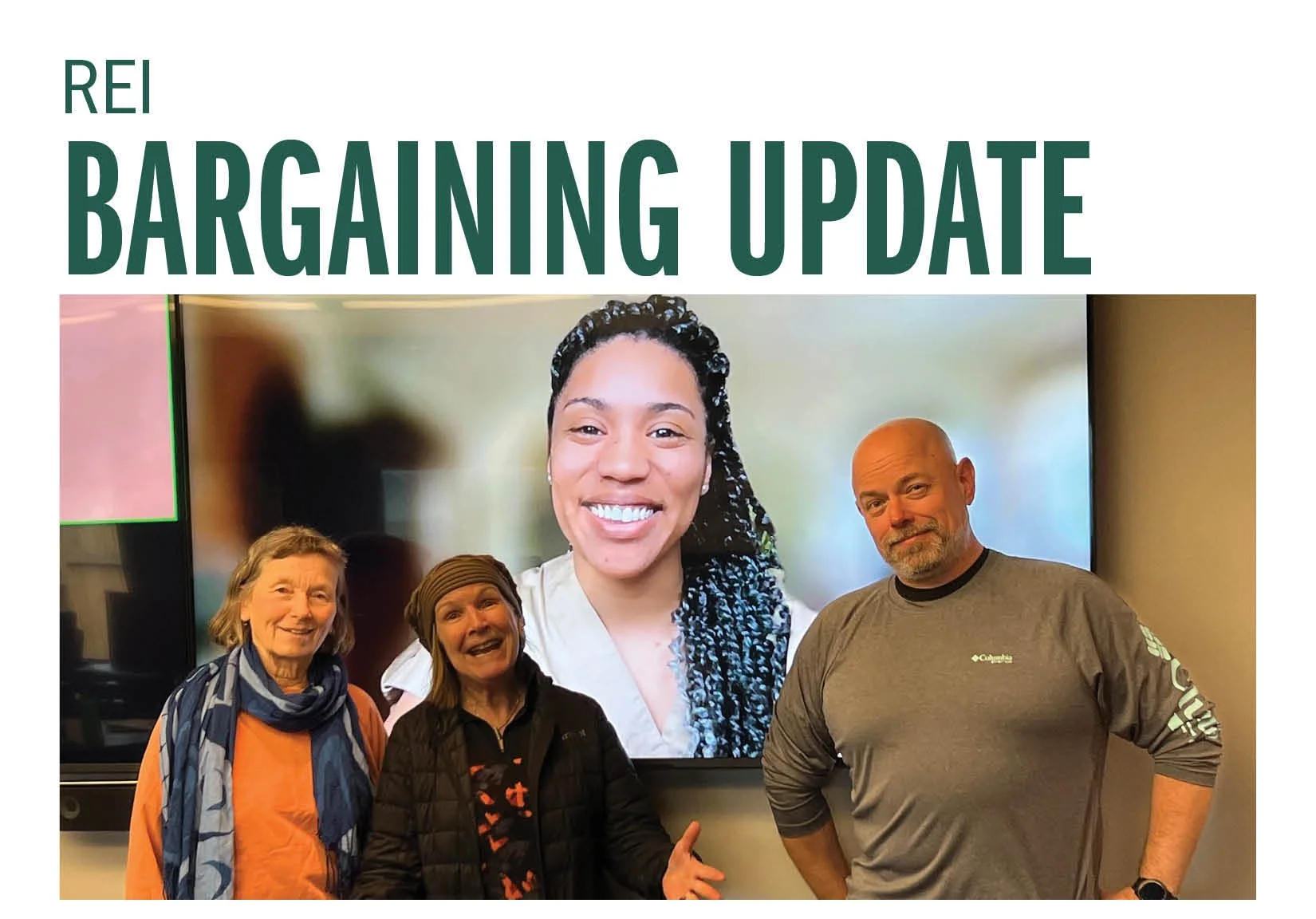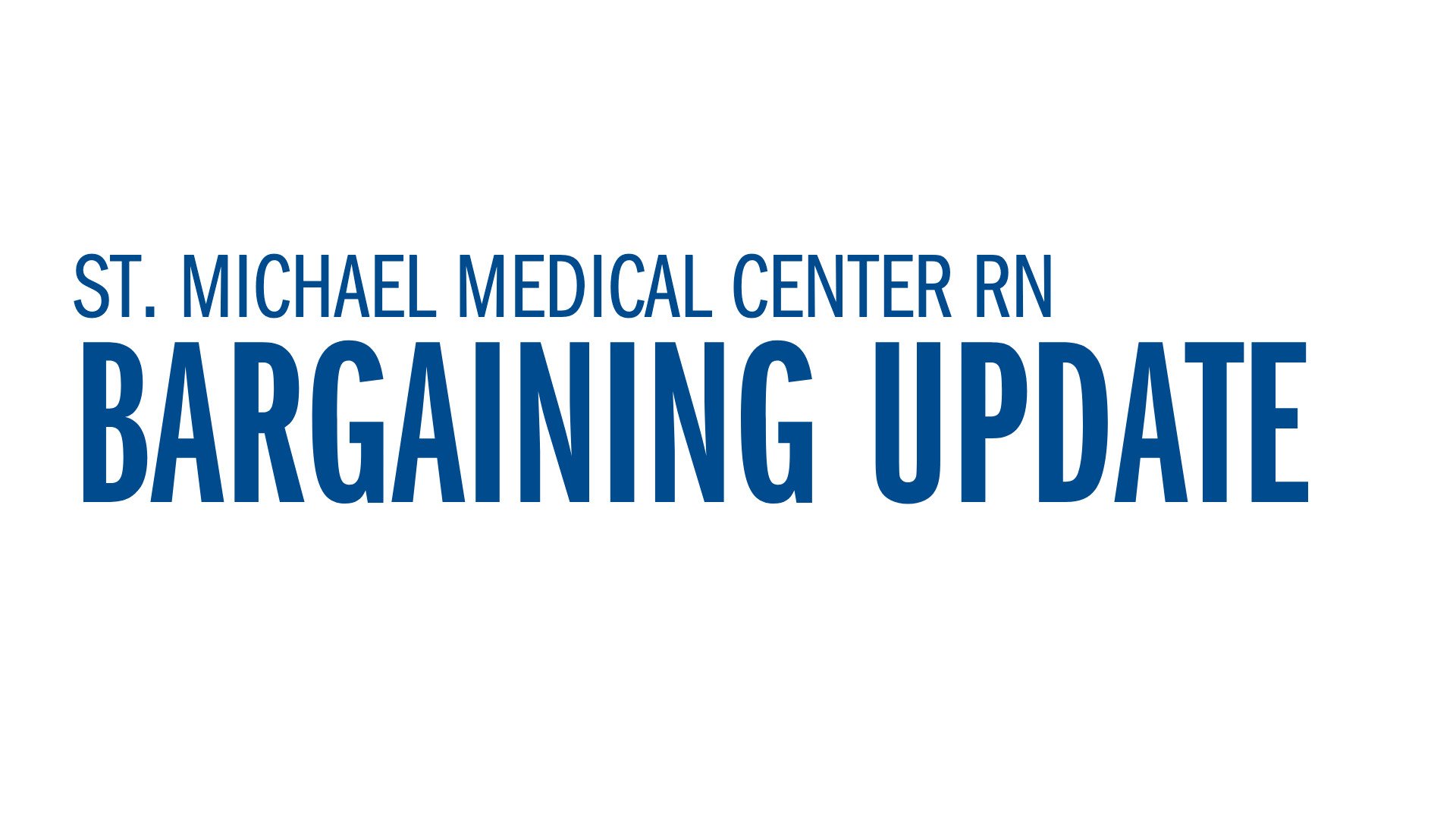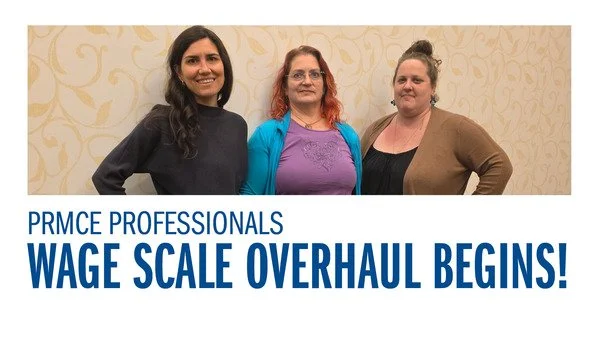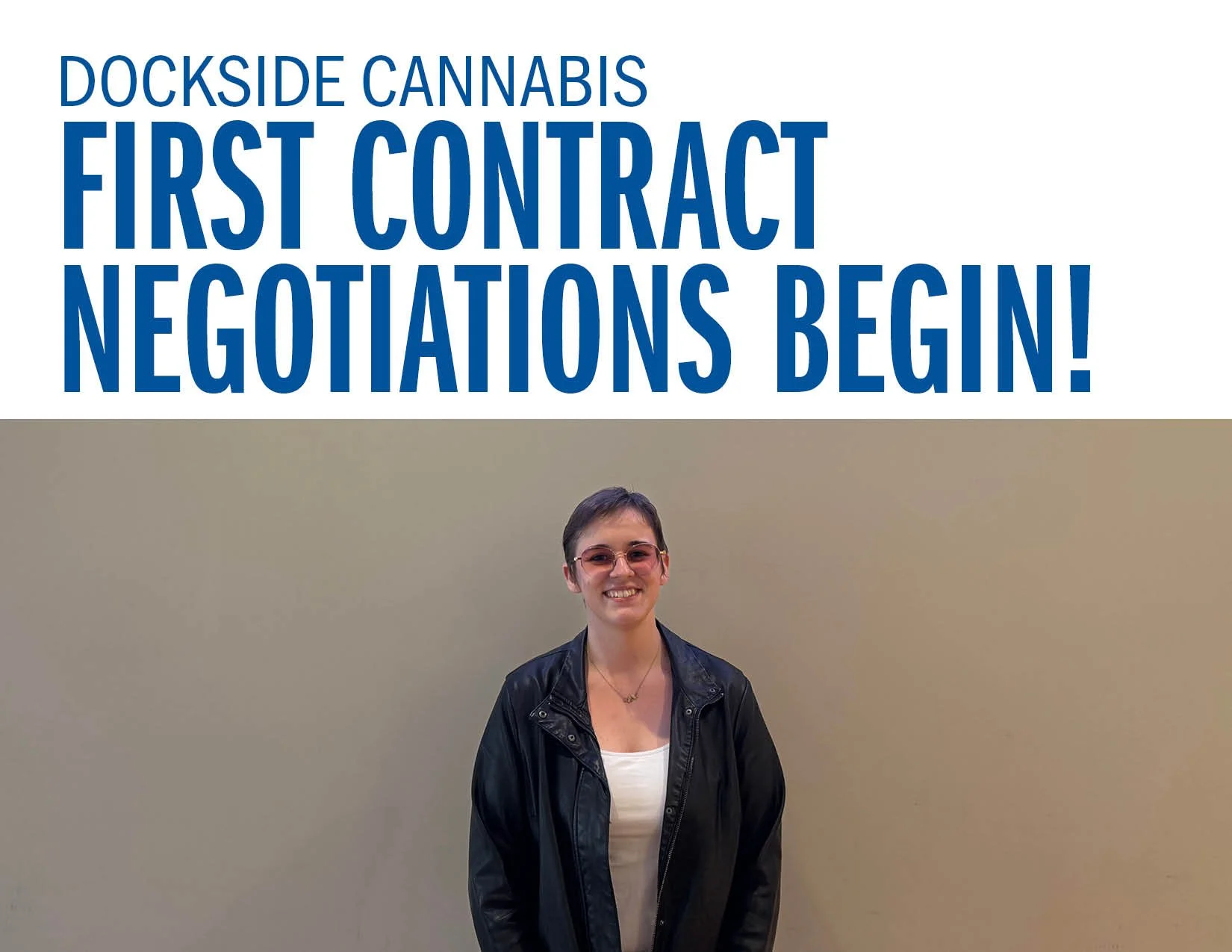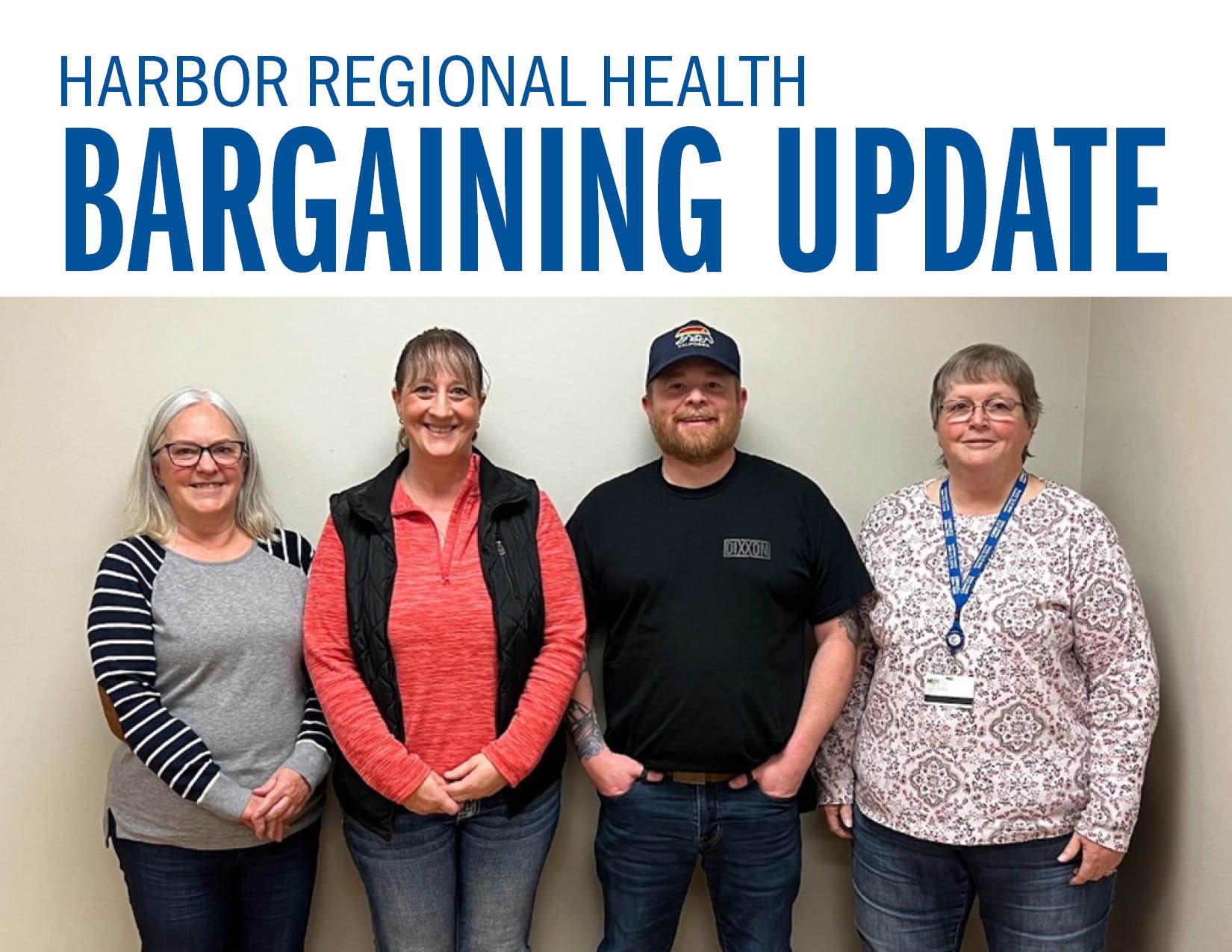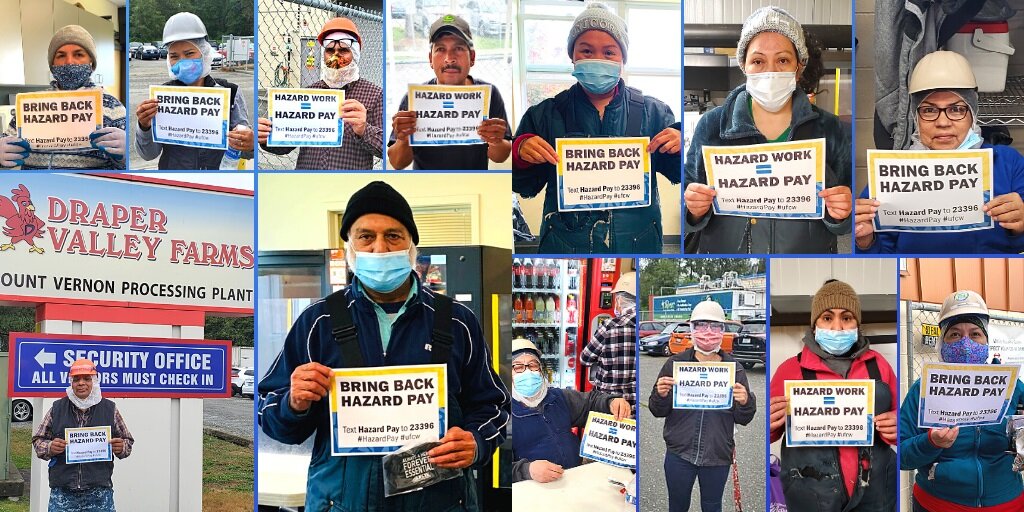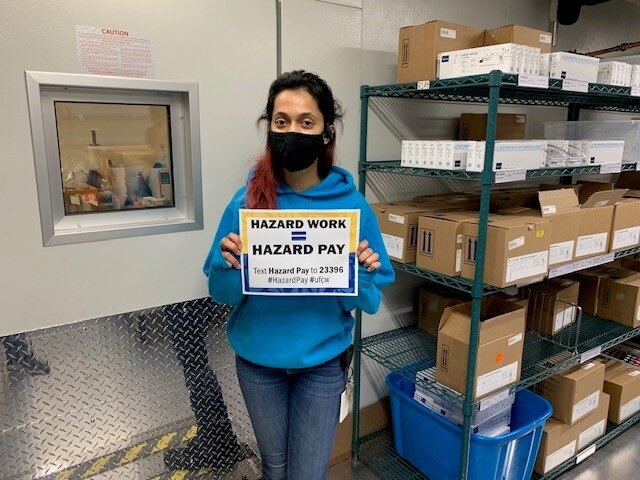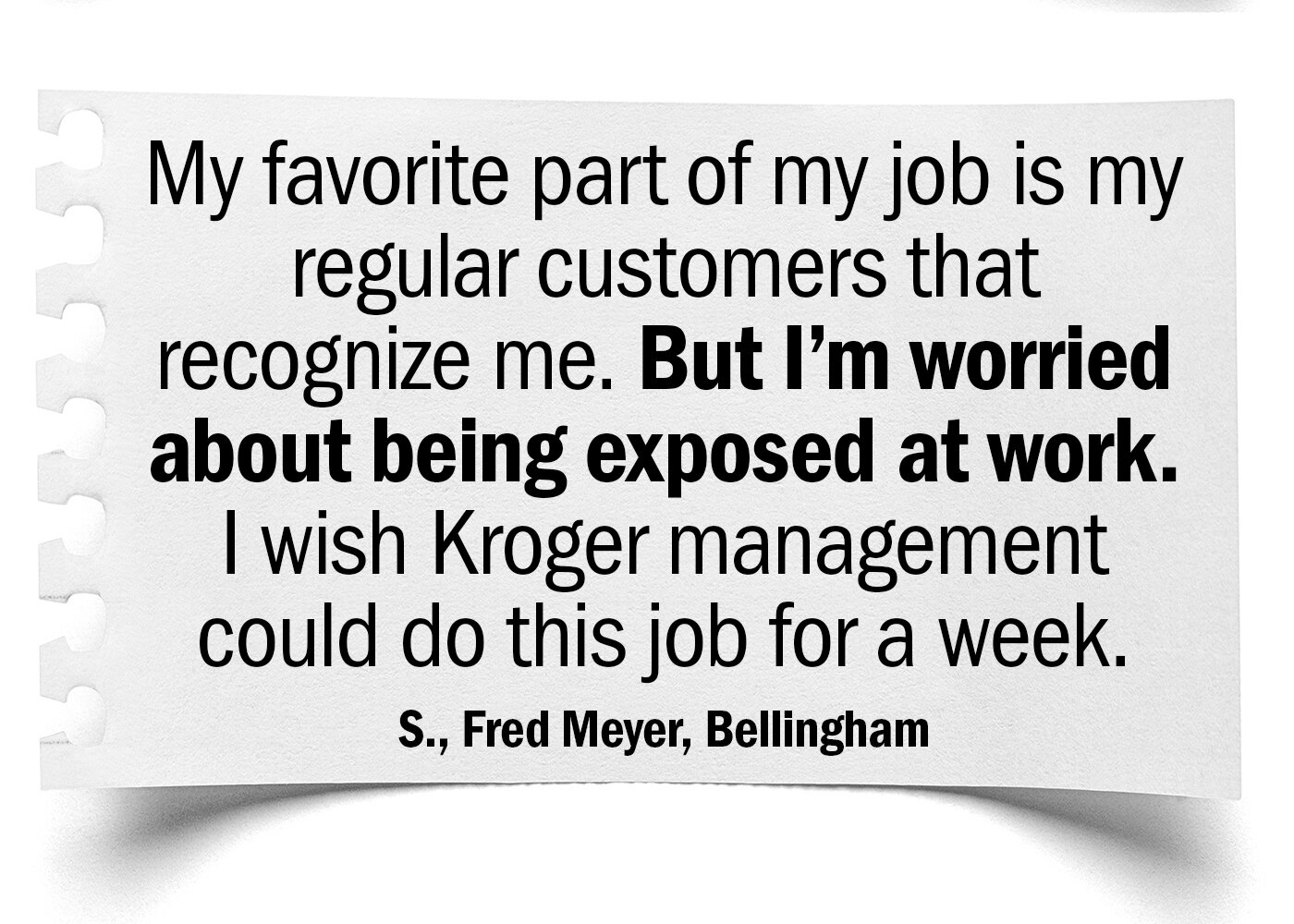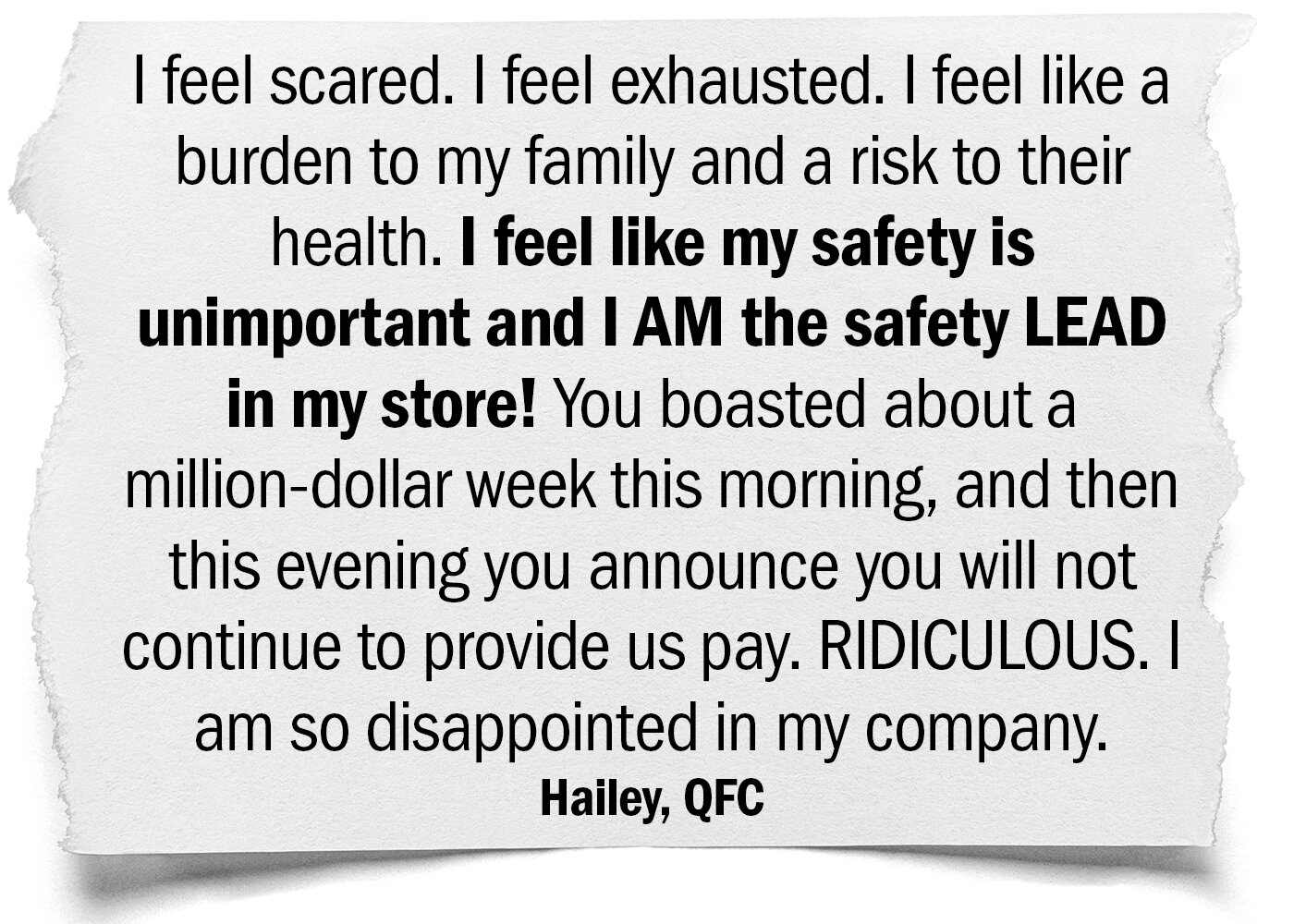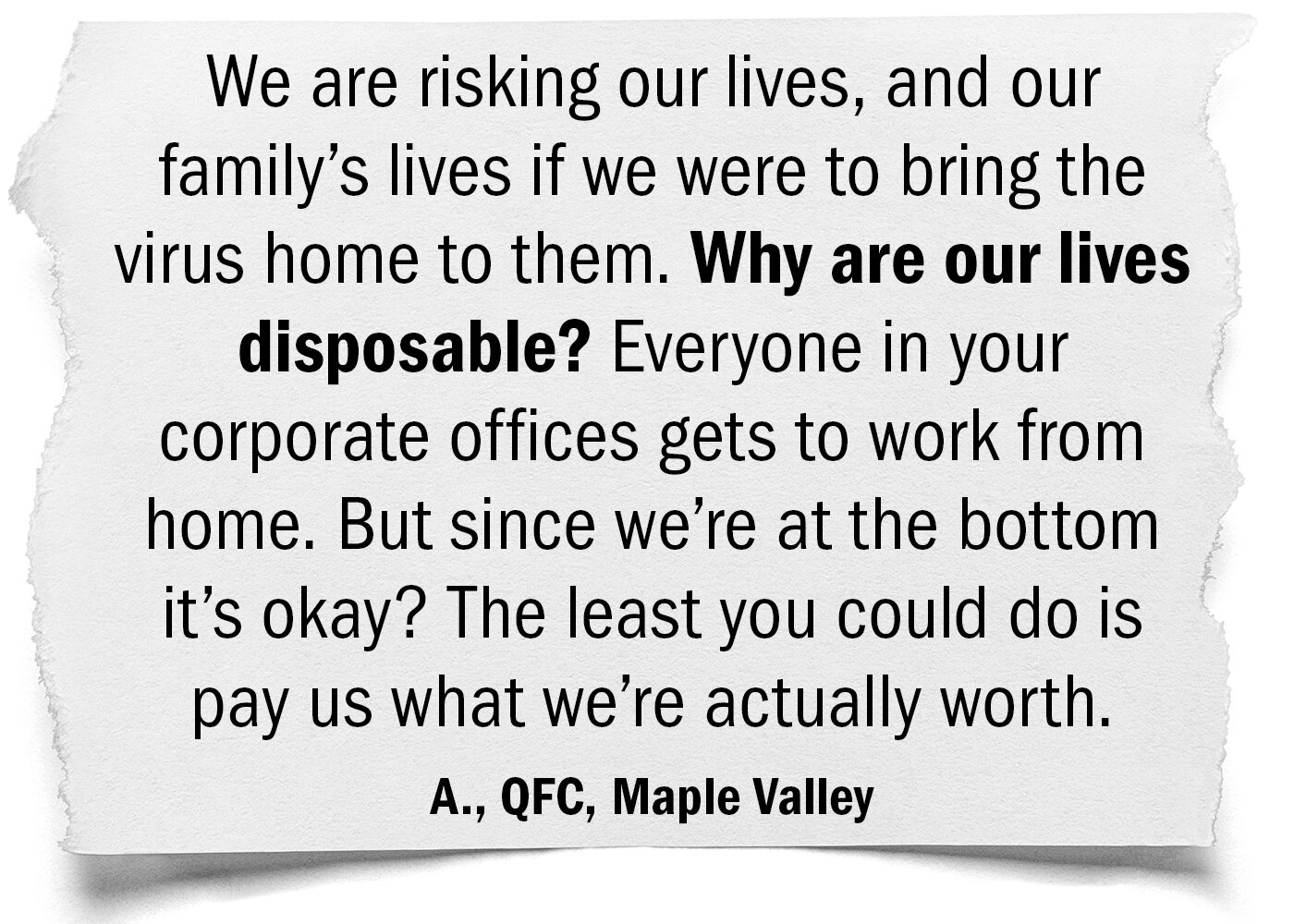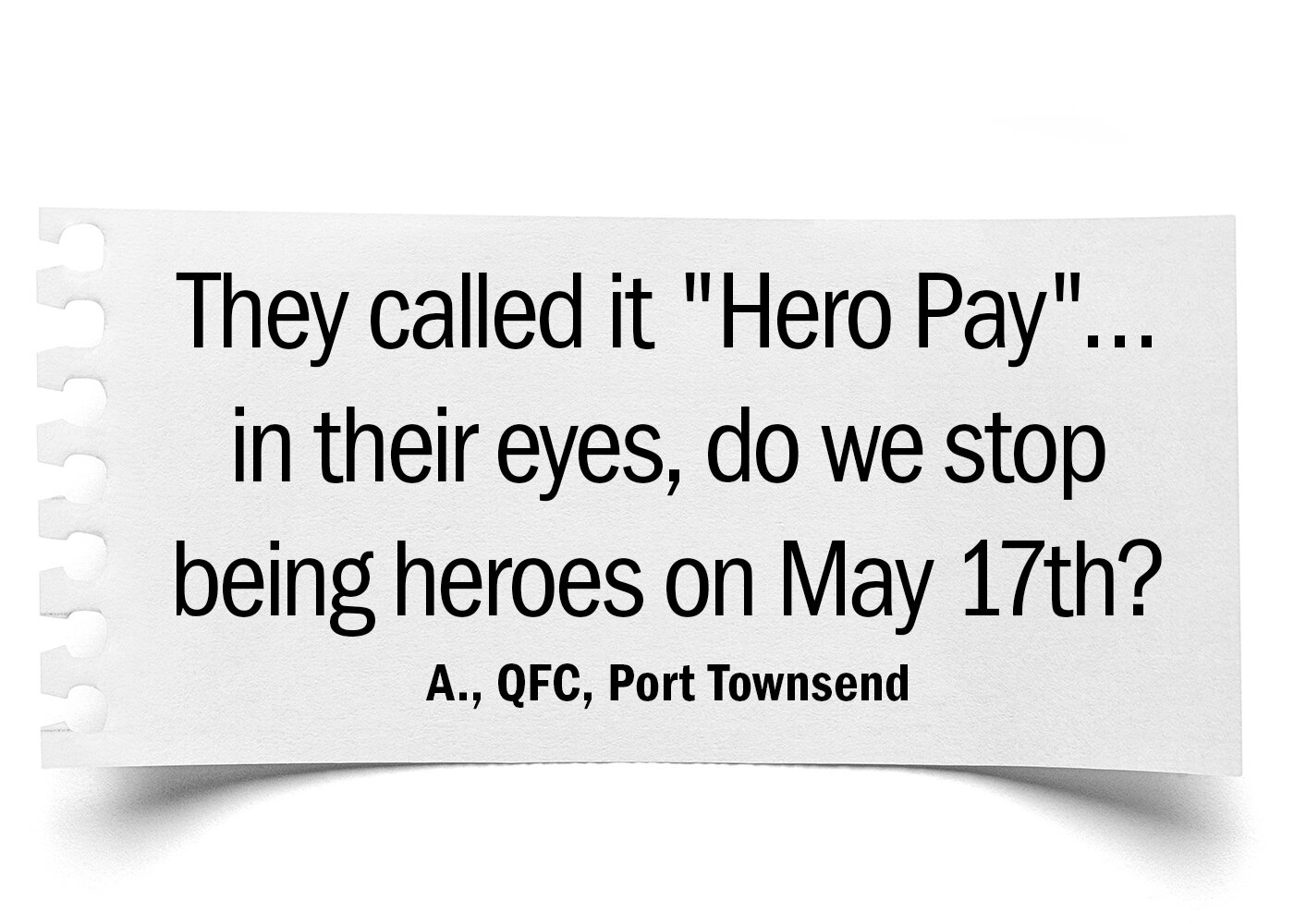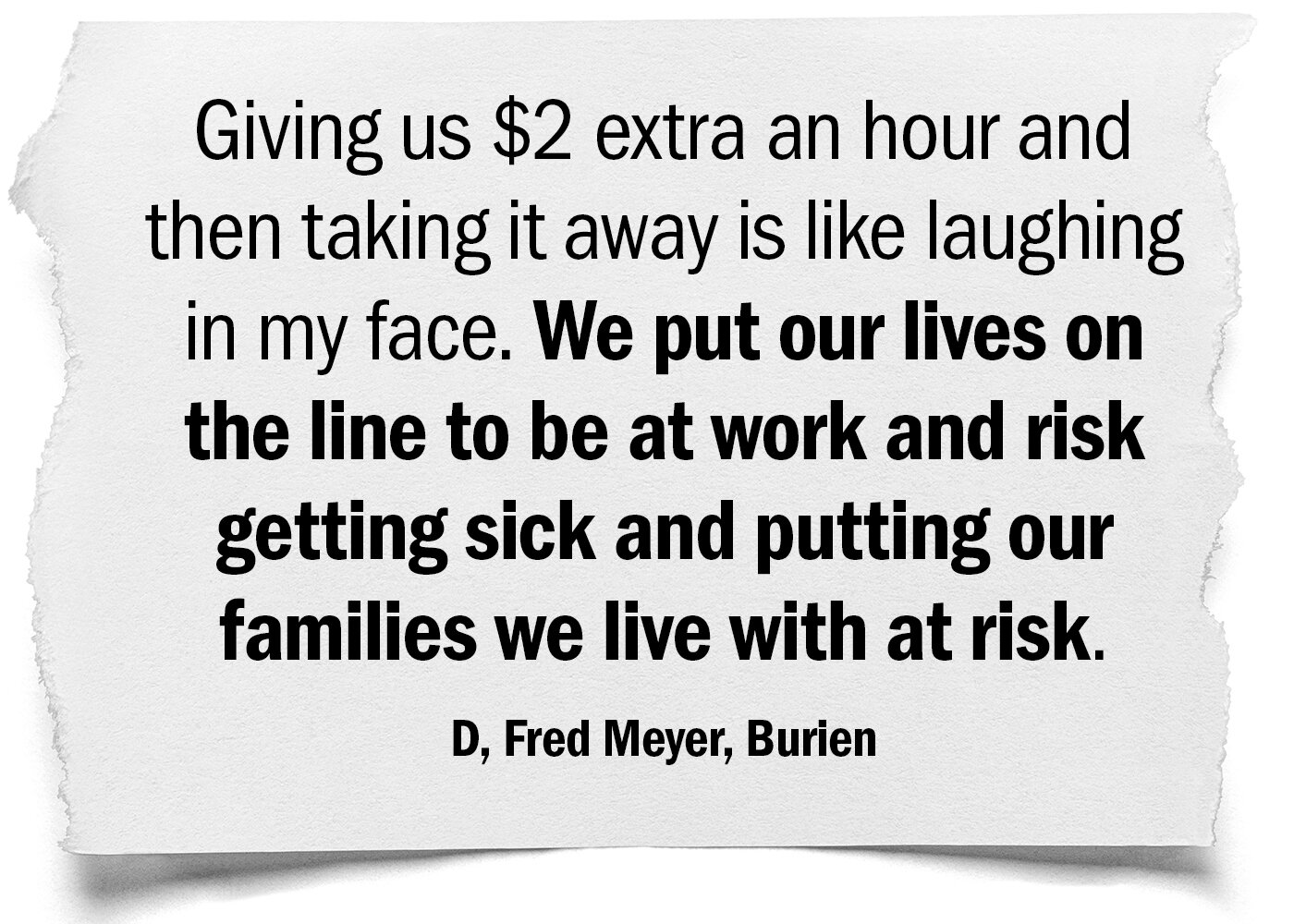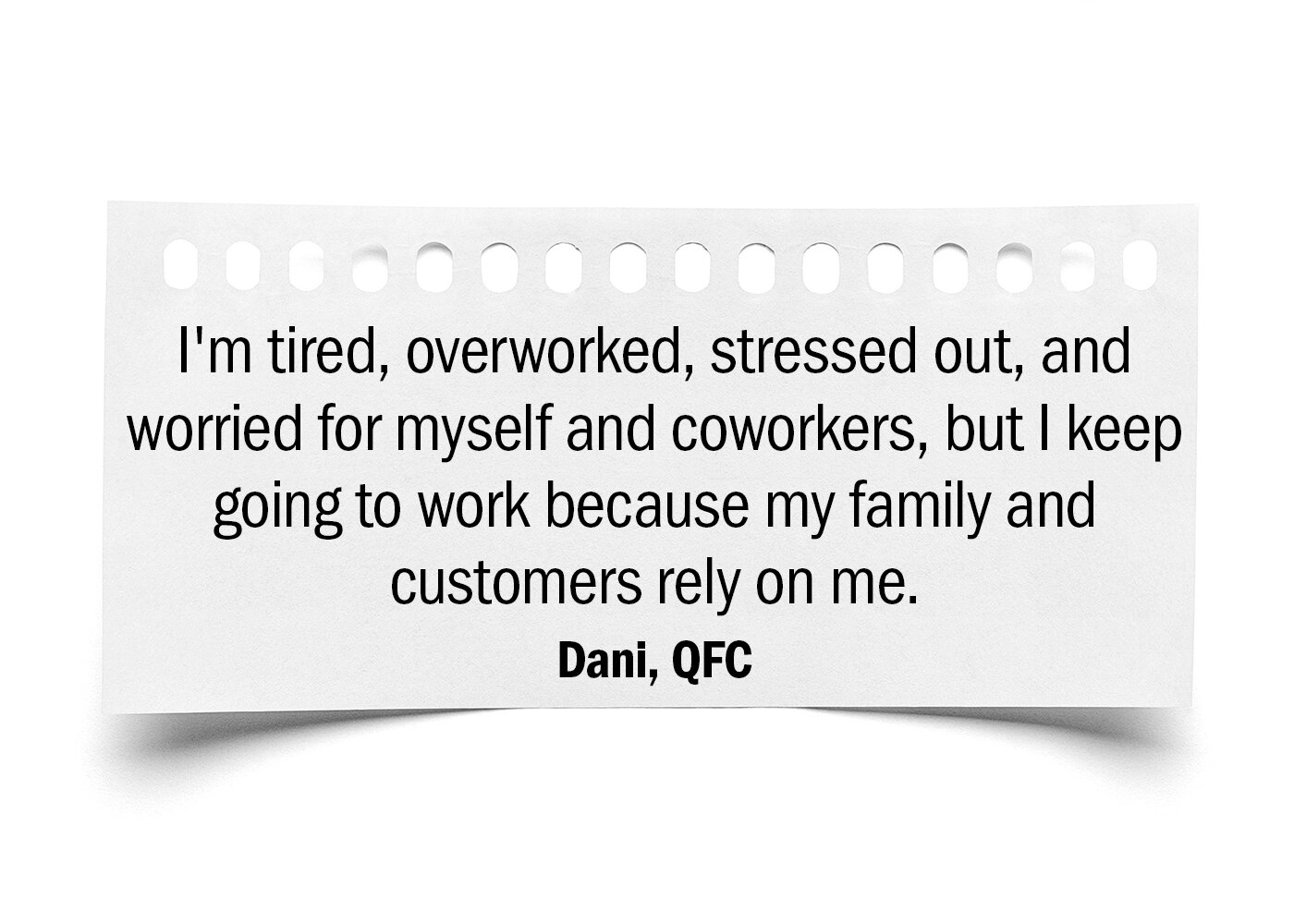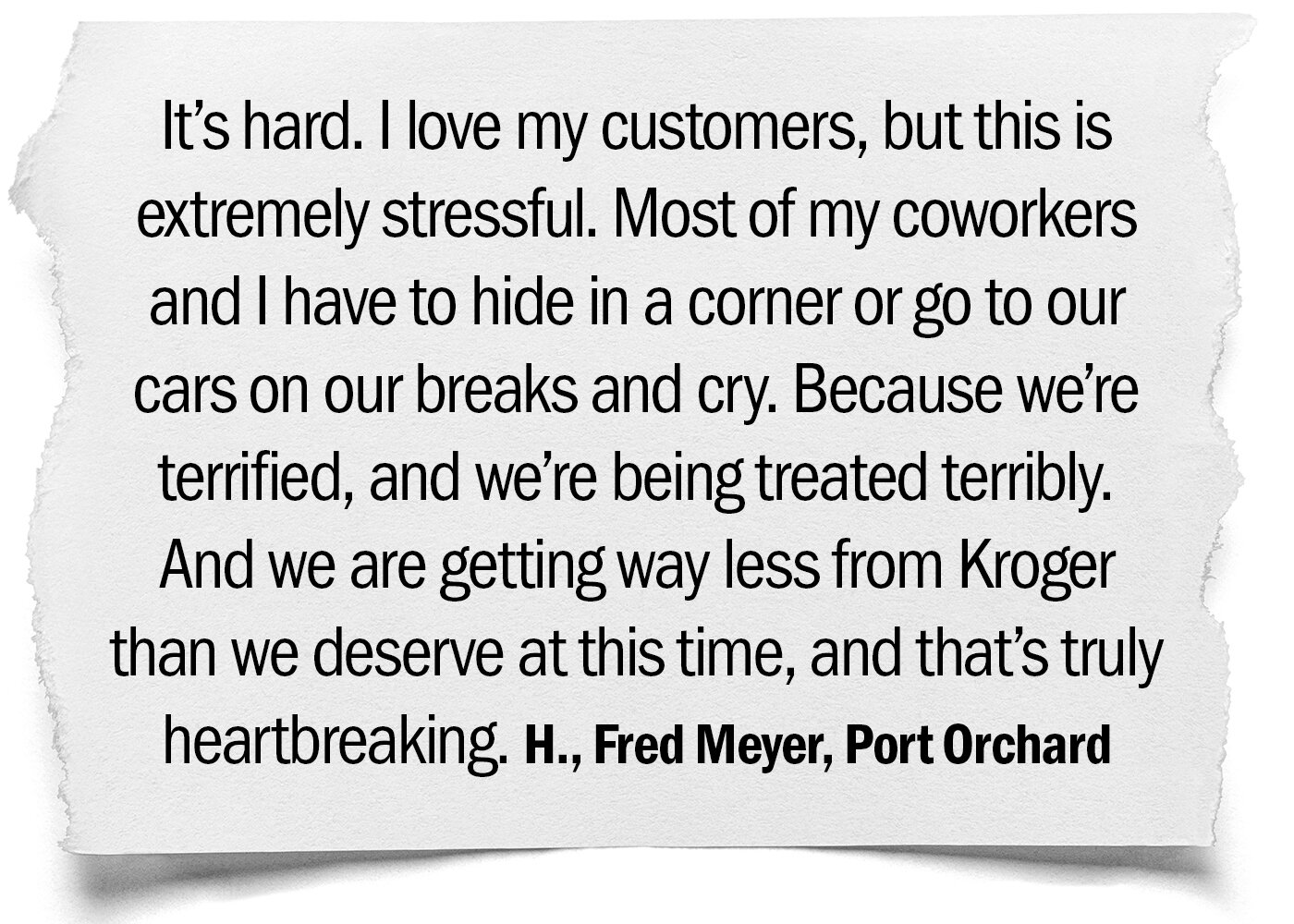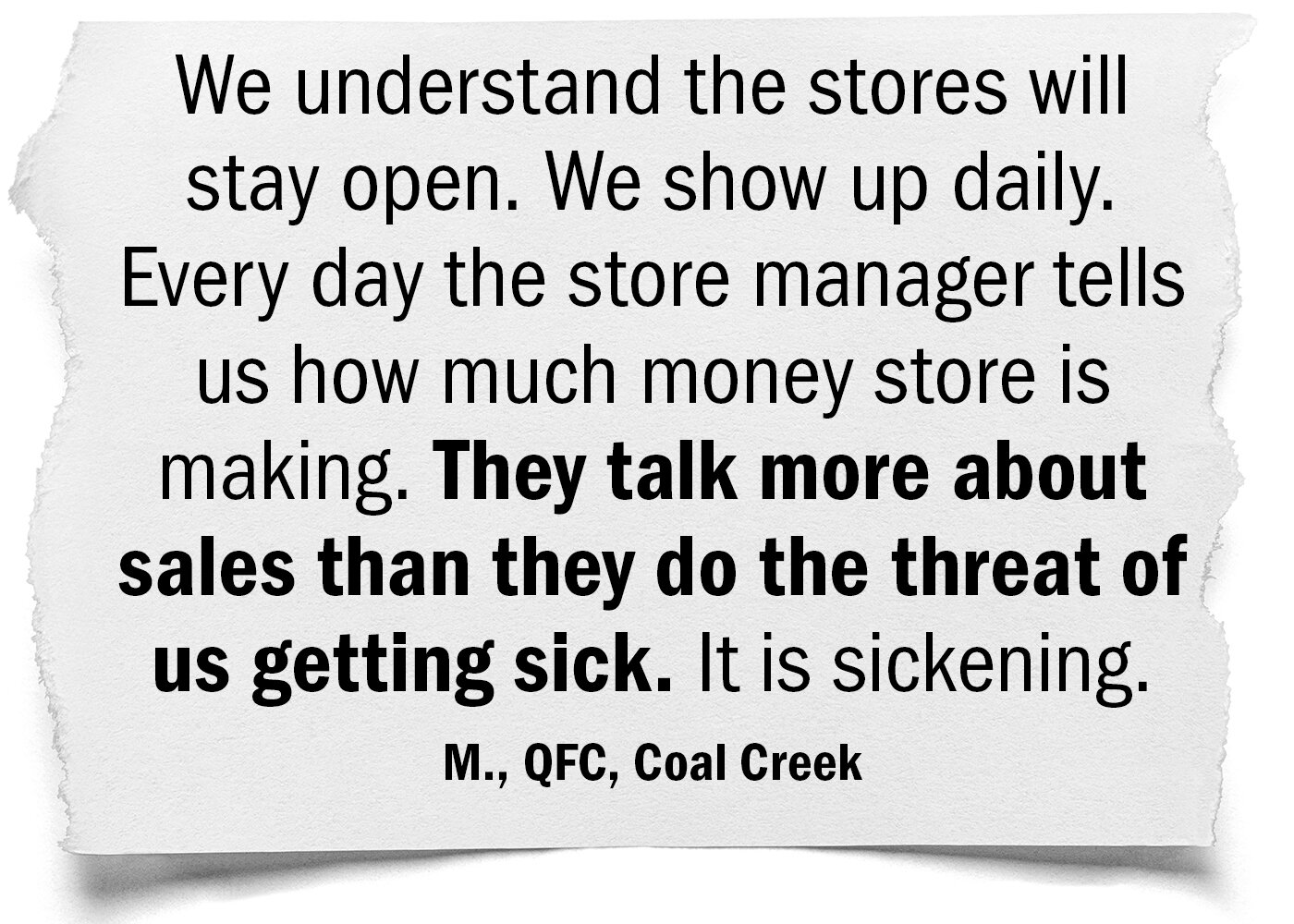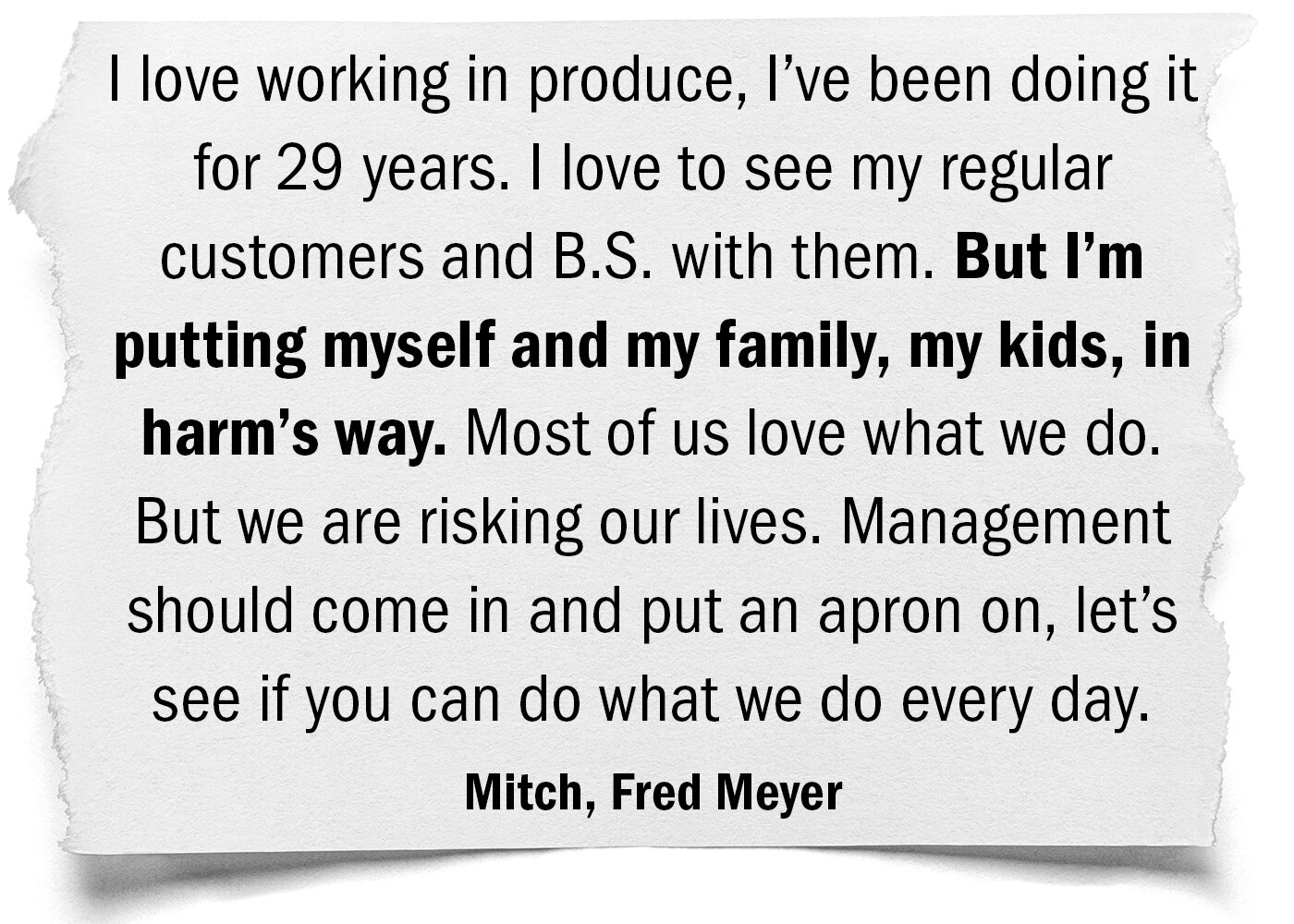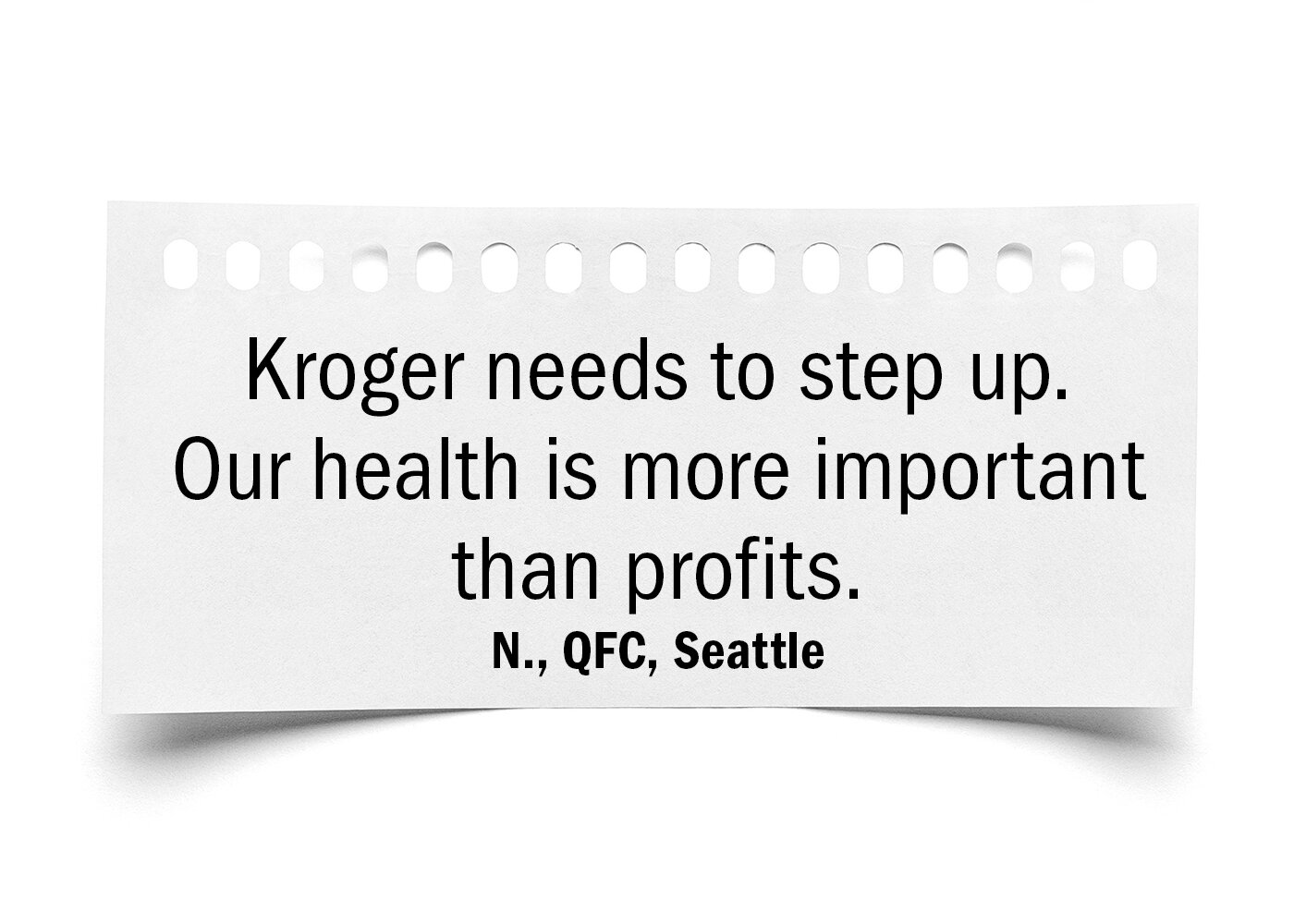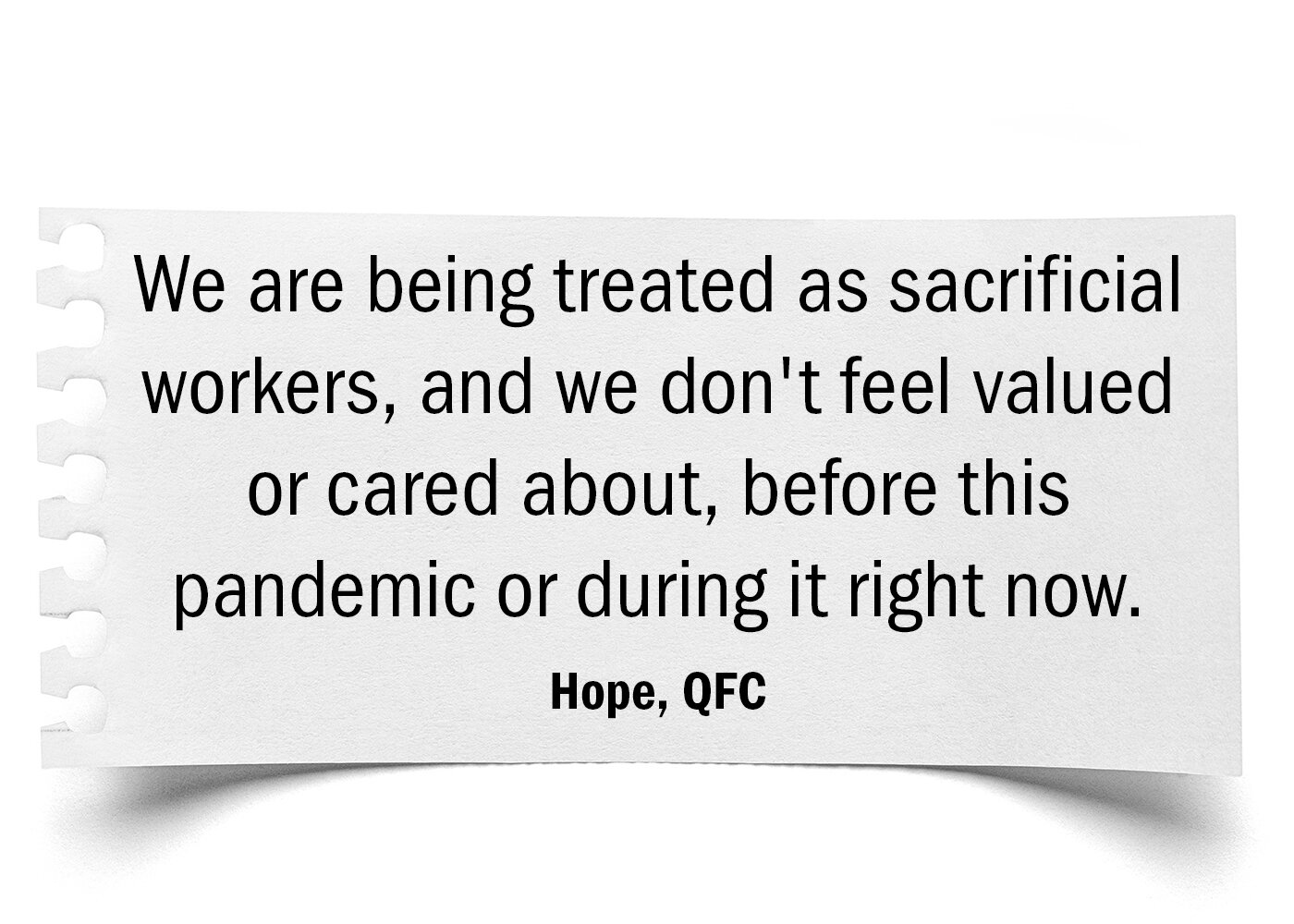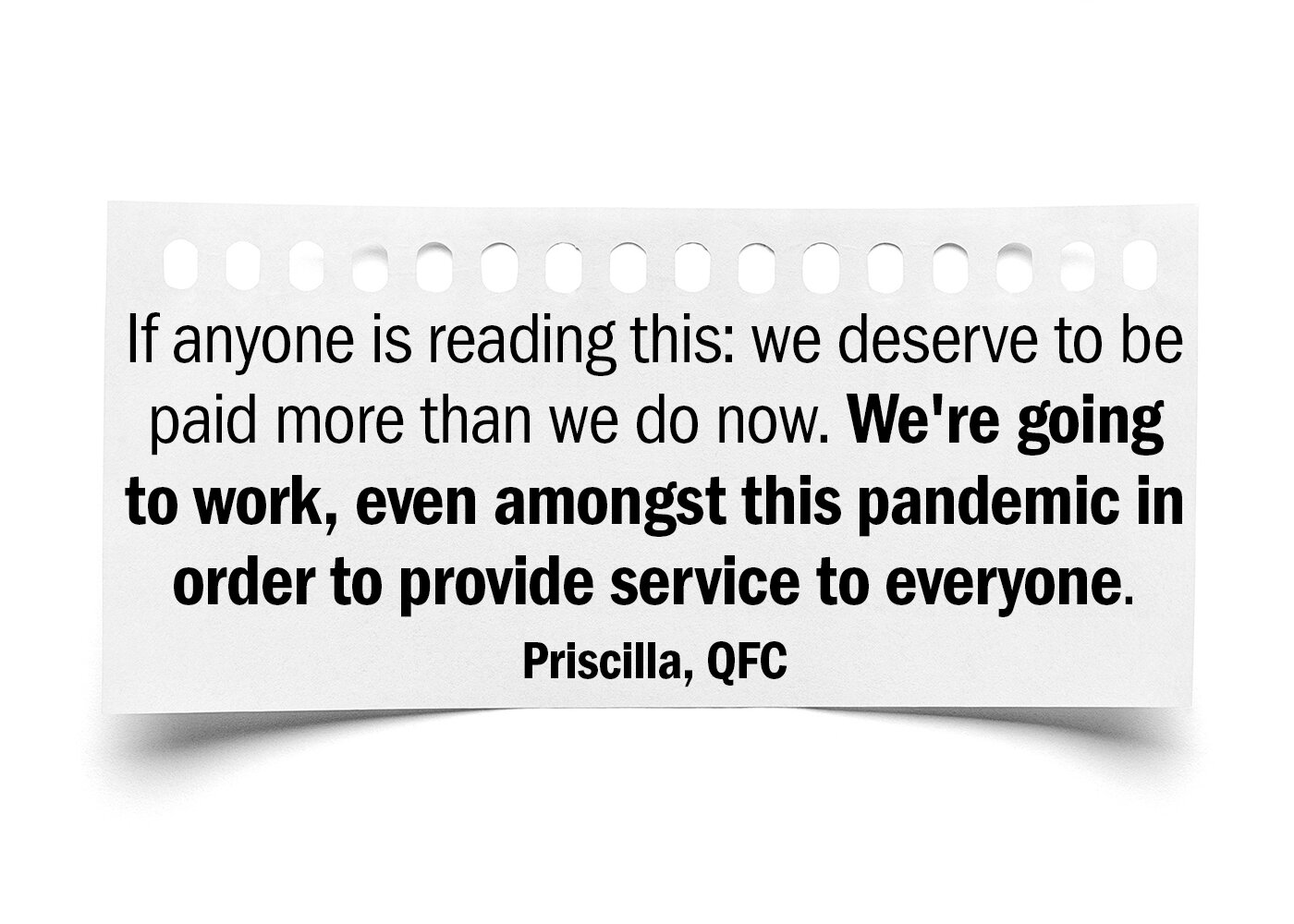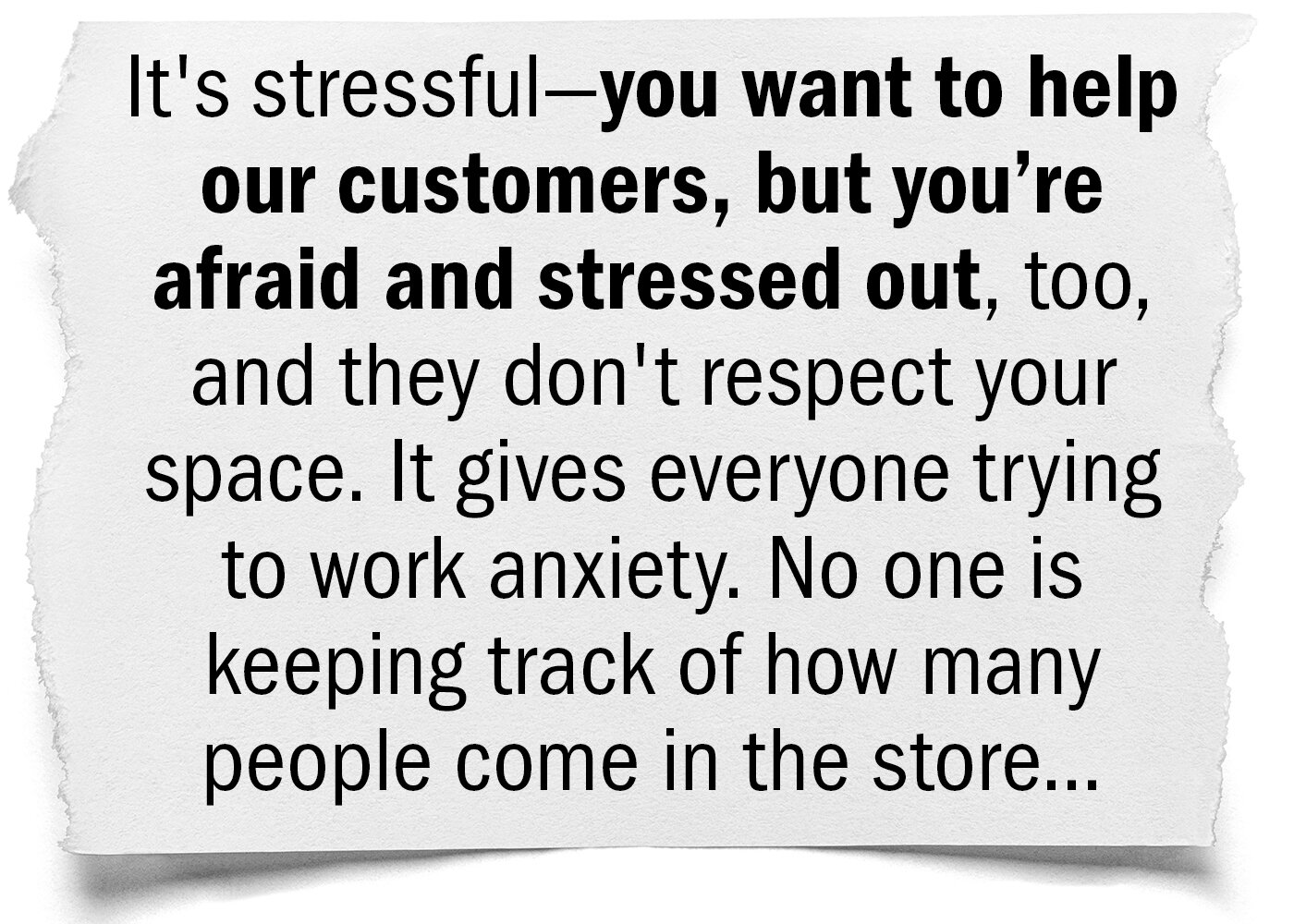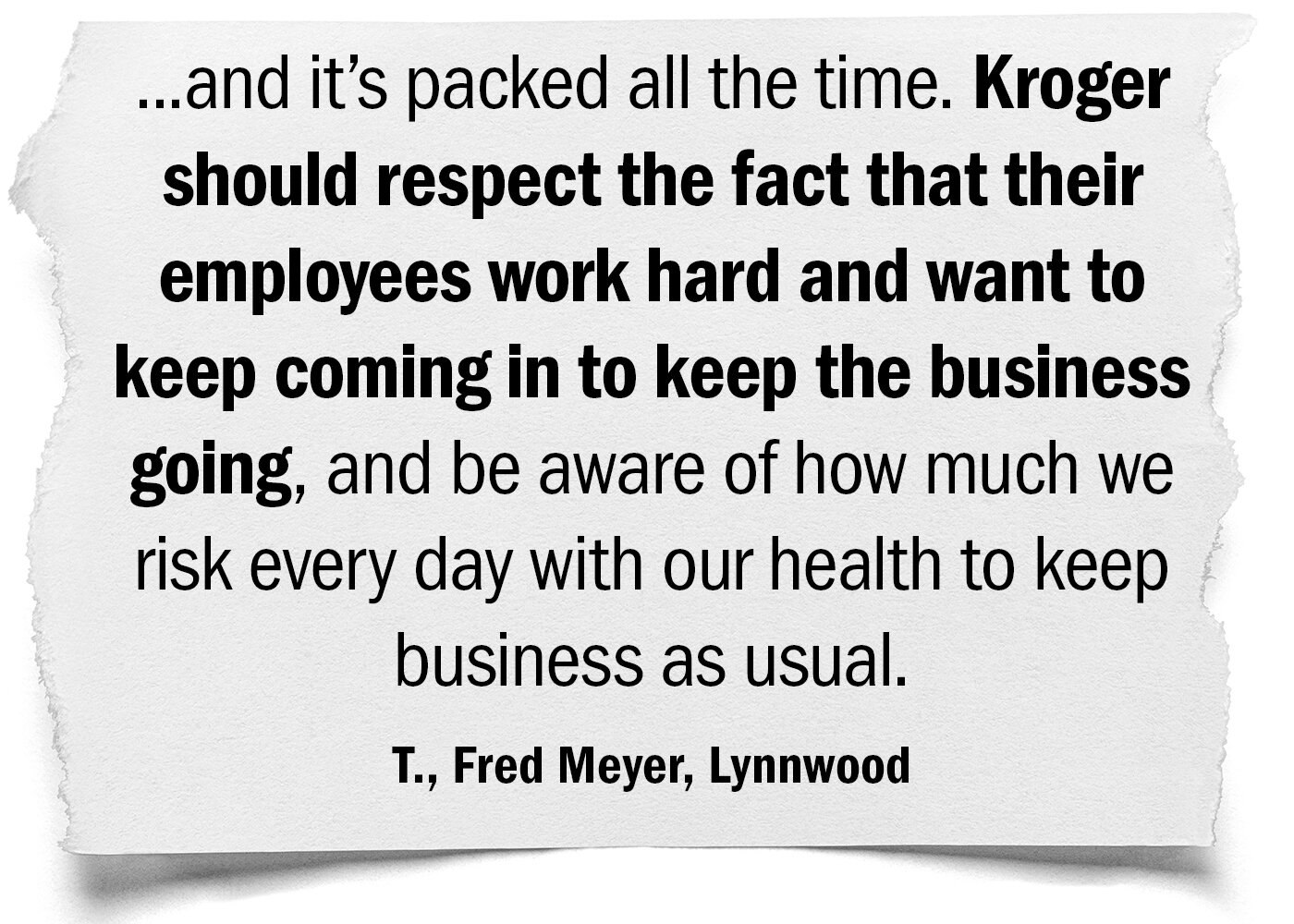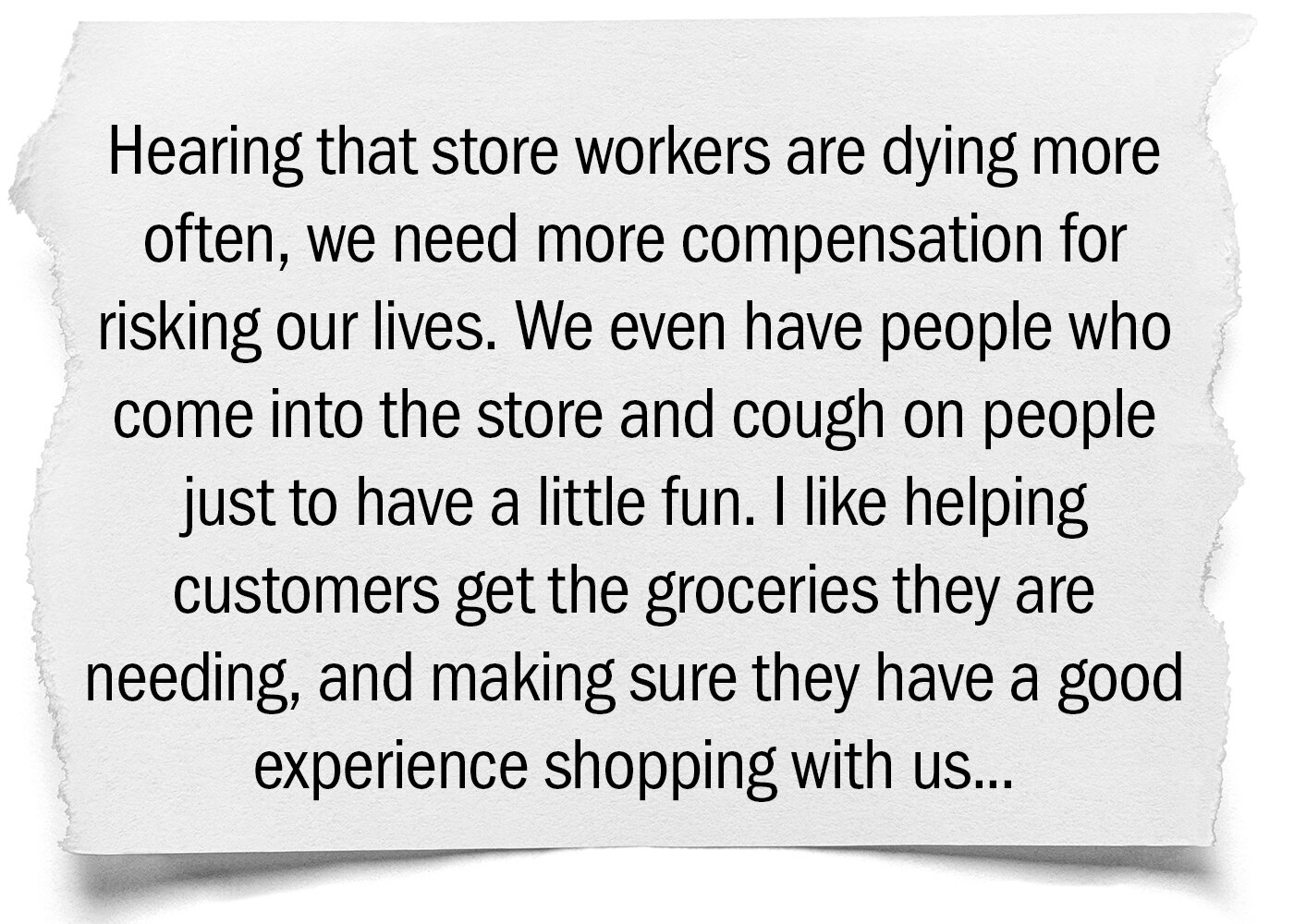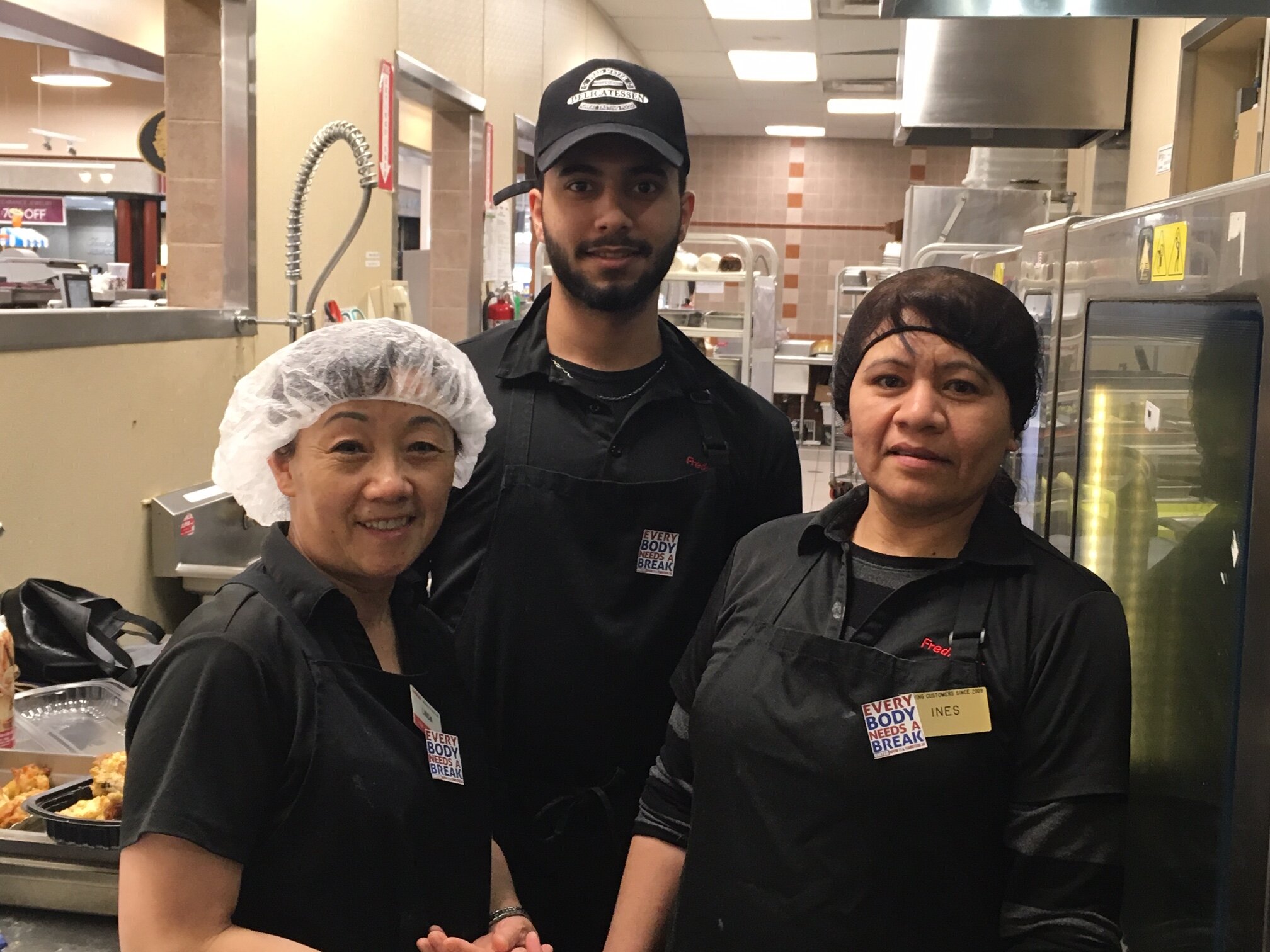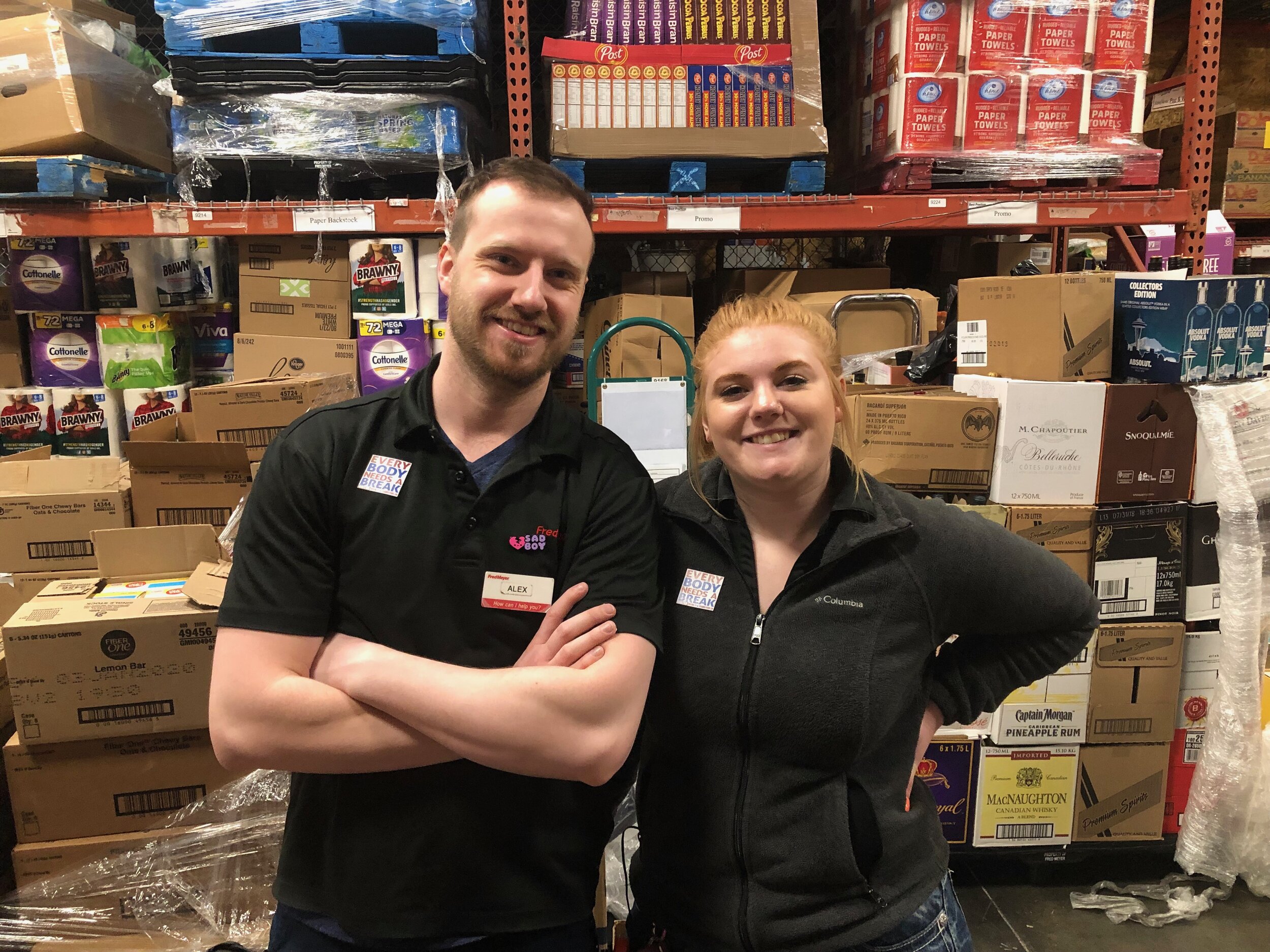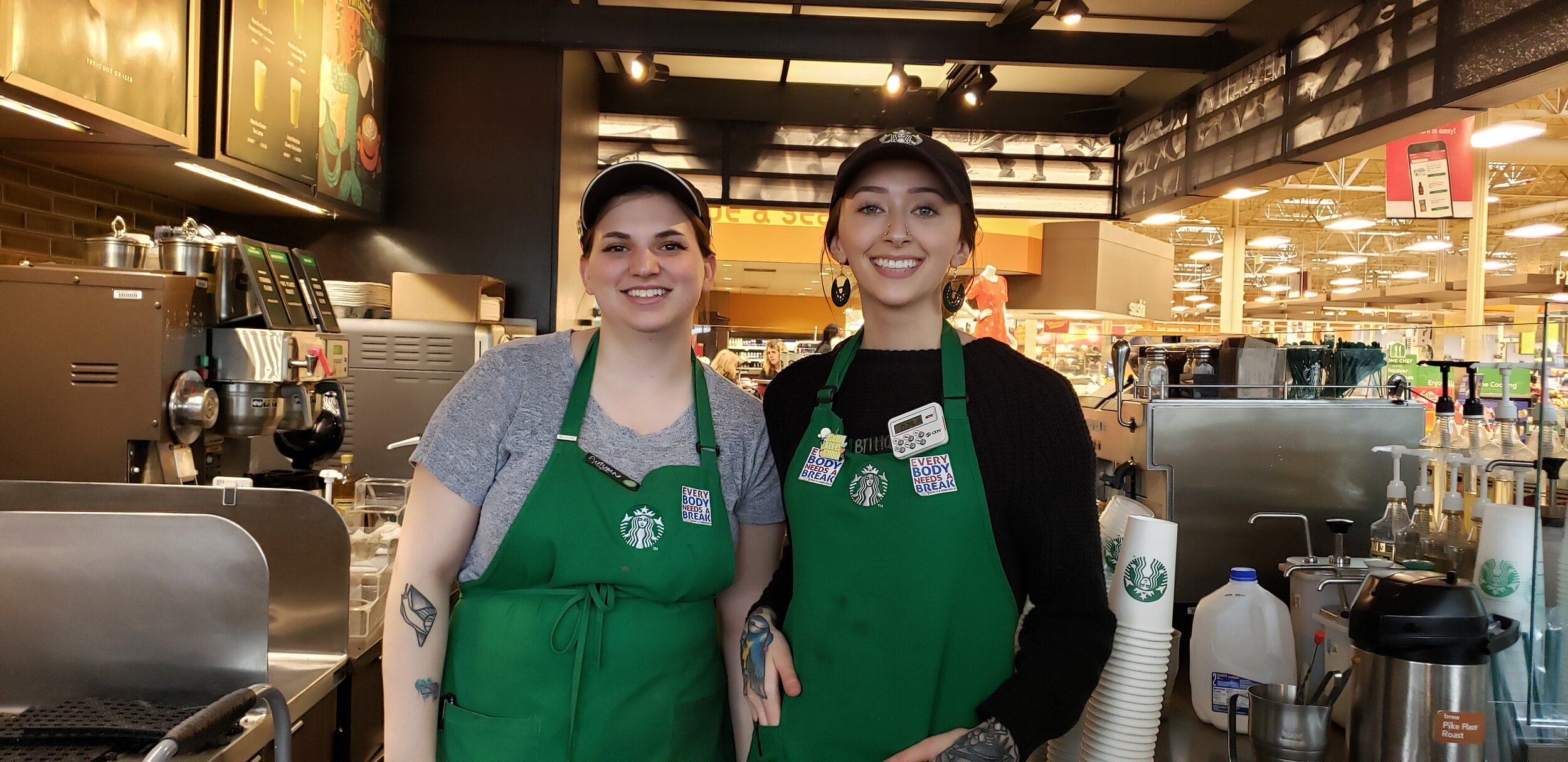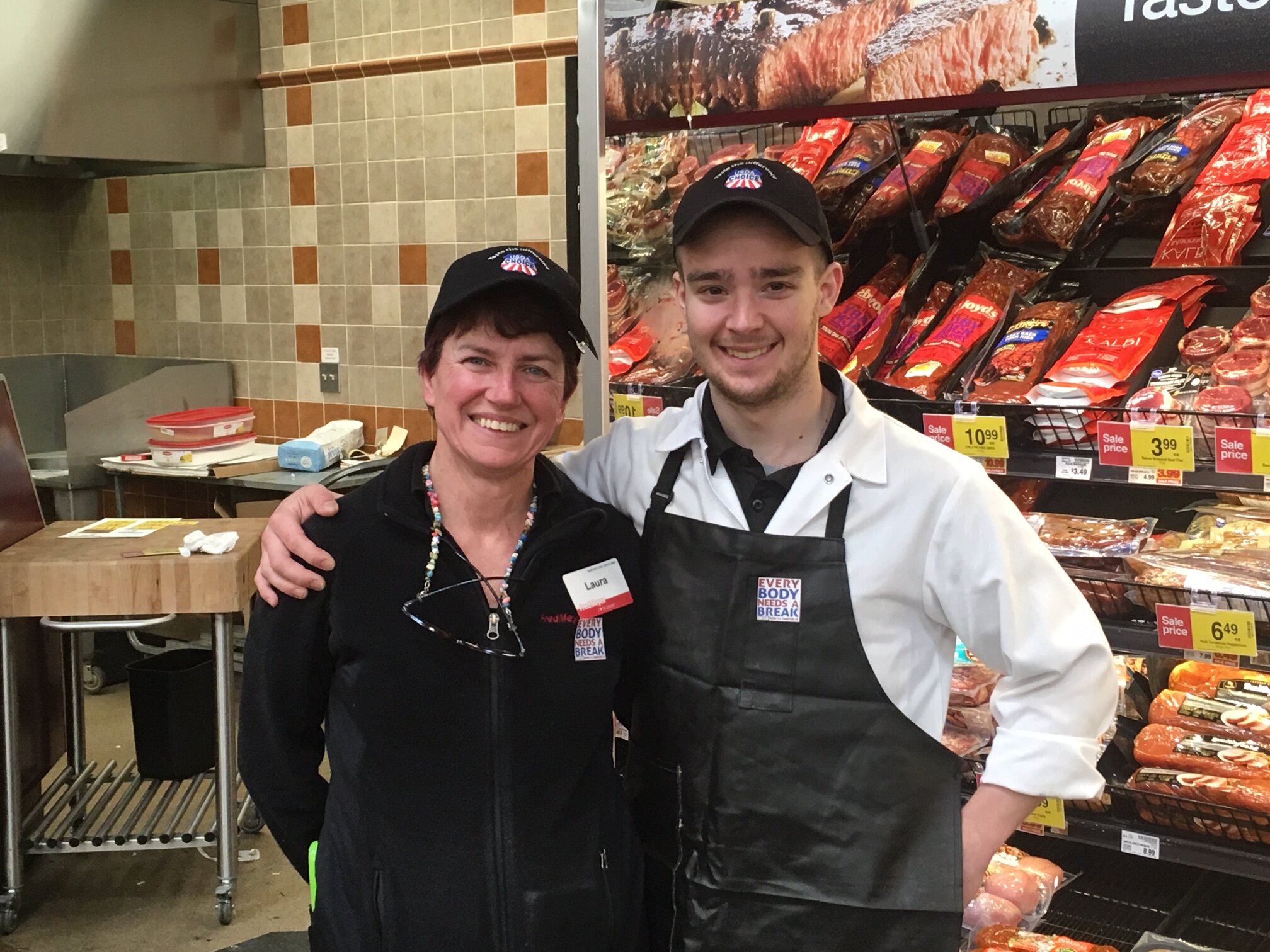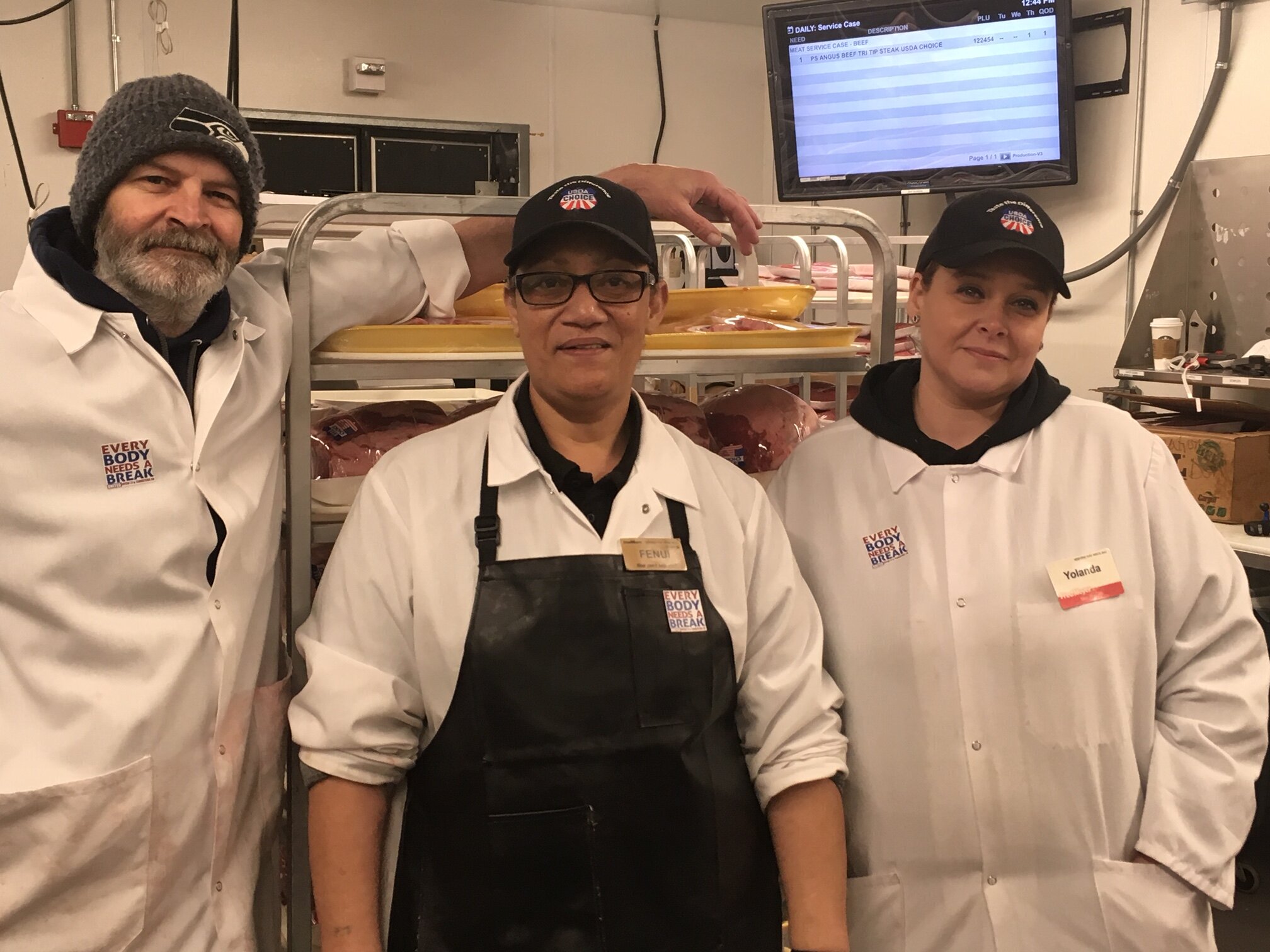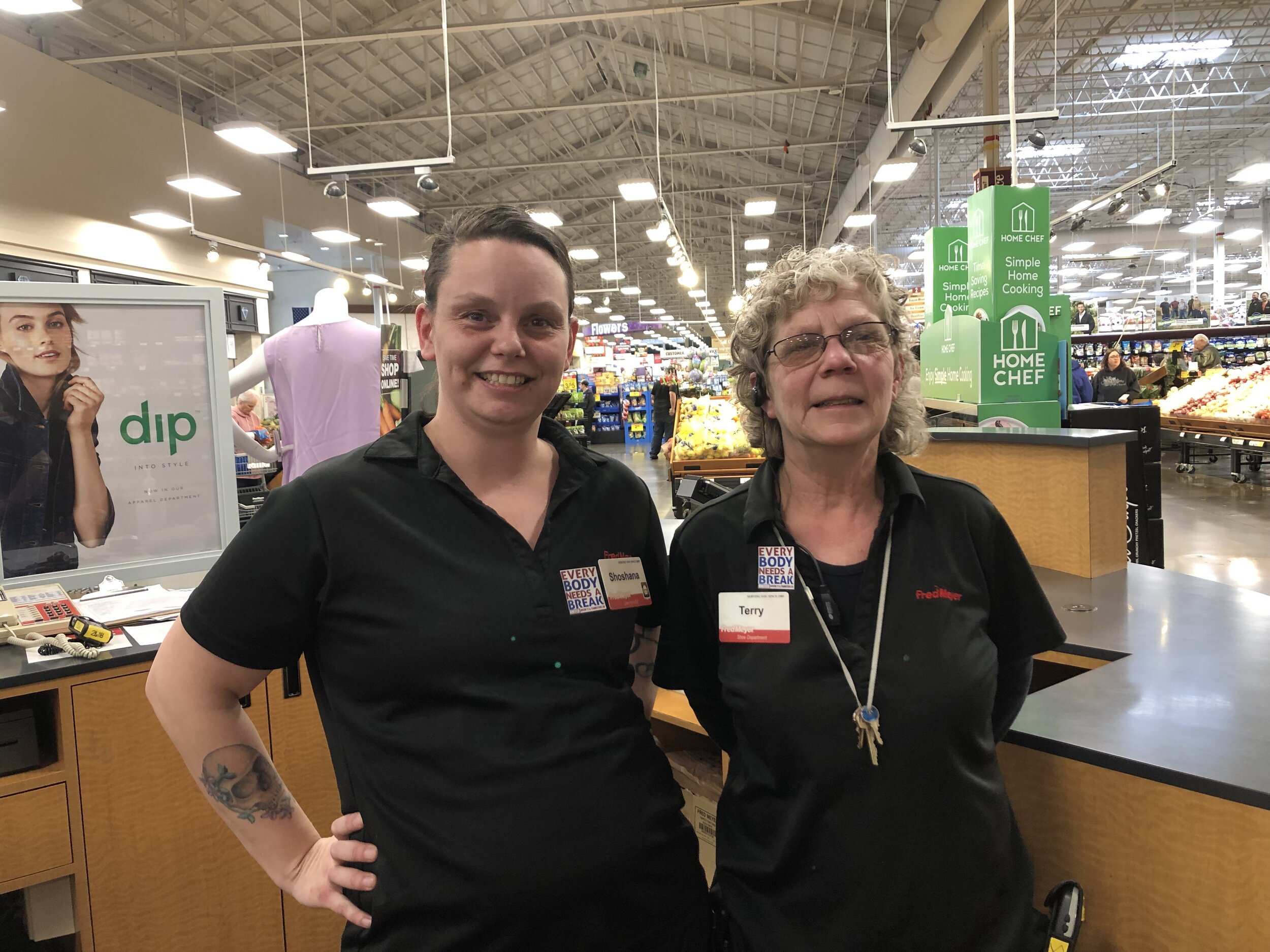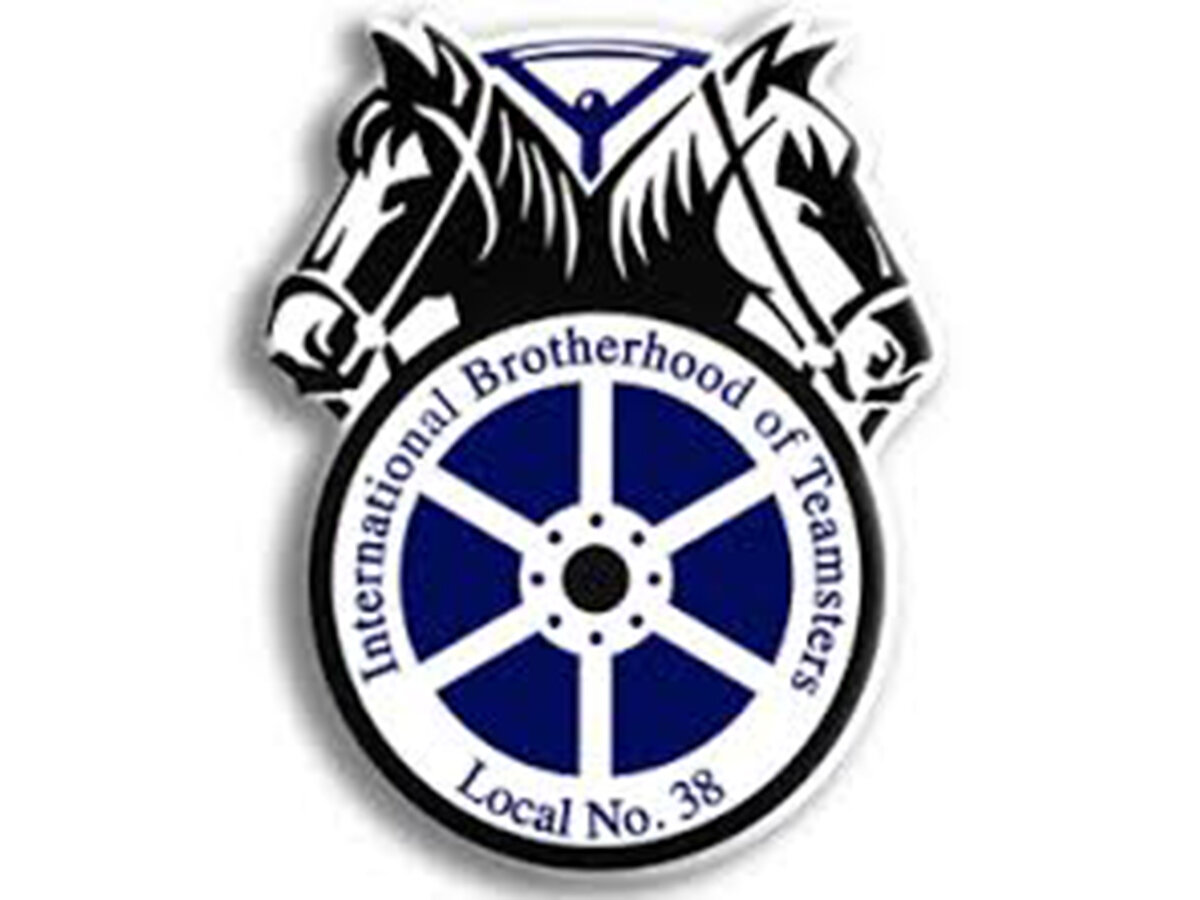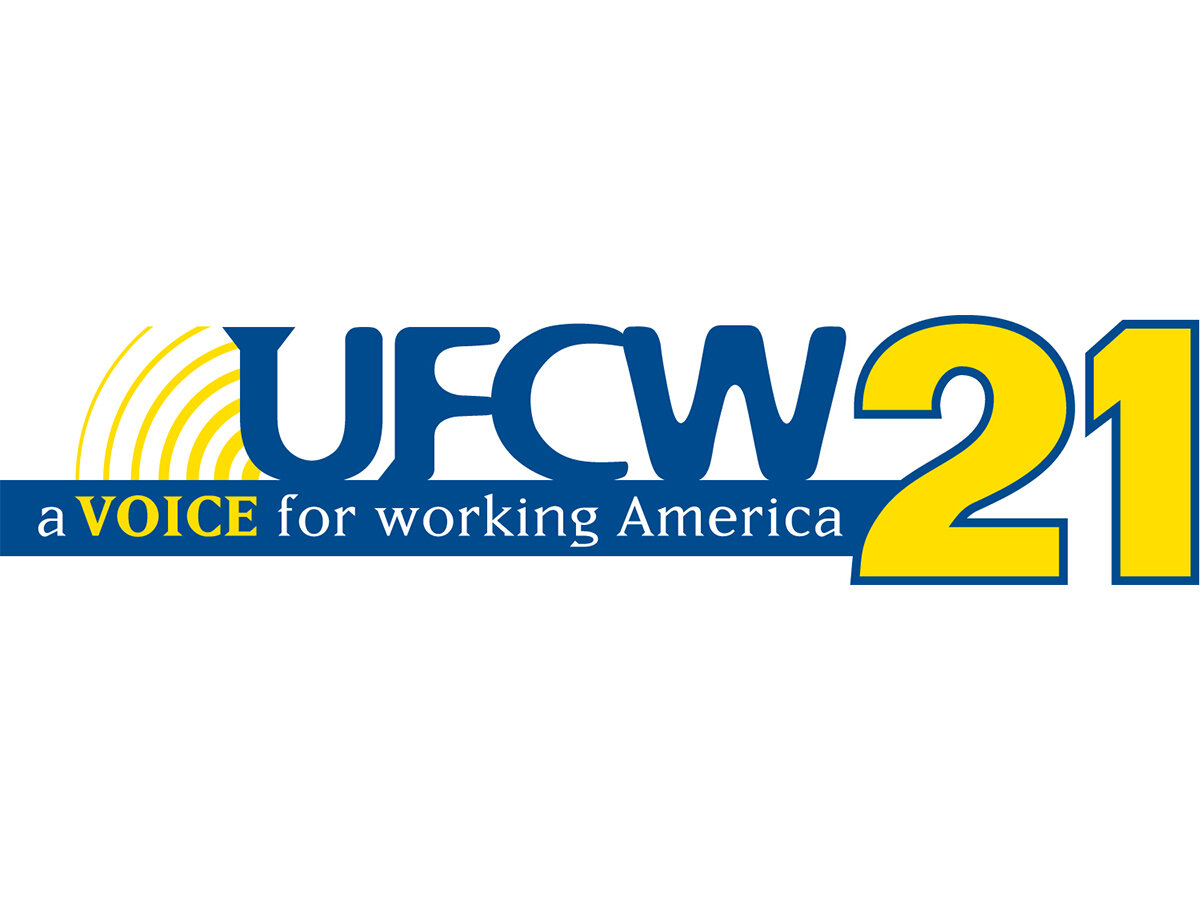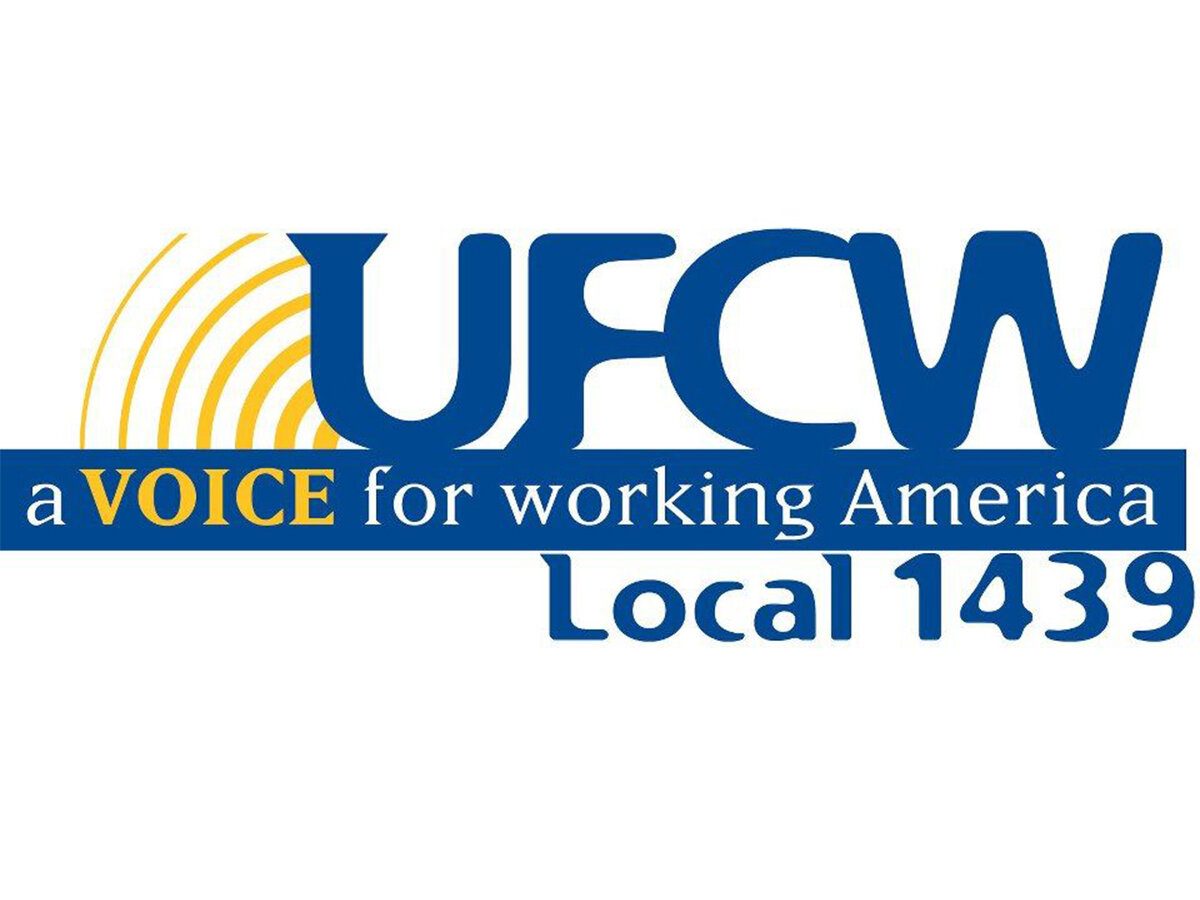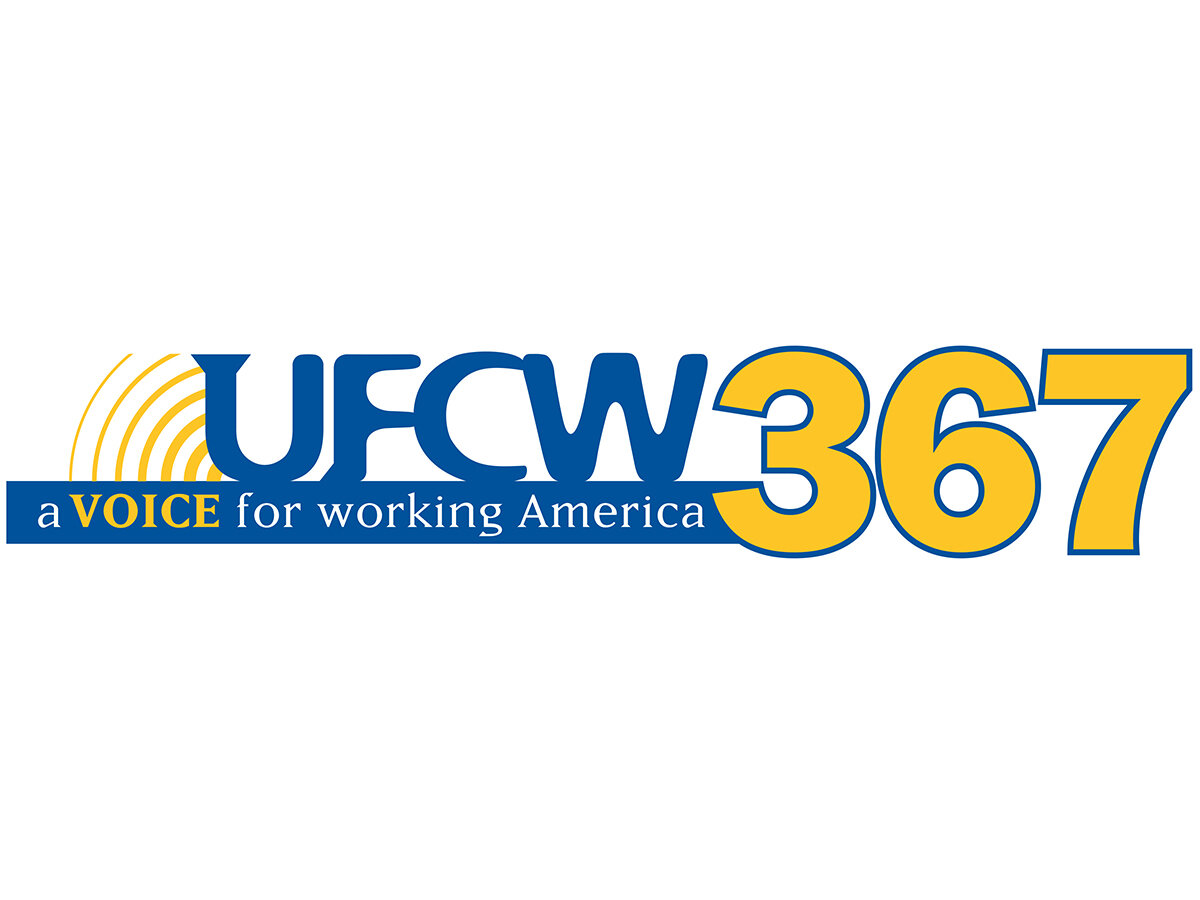Press Advisory: Puget Sound Grocery Store Workers Speak Out for Hazard Pay, Staffing and Safety
/Advisory
For immediate release: Monday November 23, 2020
Contact: Tom Geiger. 206-604-3421
Puget Sound Grocery Store Workers Speak Out for Hazard Pay, Staffing and Safety
Thank you to all who attended, if you missed this online webinar where unionized grocery store workers share their experiences and feelings about improved safety and reinstating hazard pay you can watch it here.
Grocery store workers here in Washington and around the nation continue to go to work every day, risking exposure to the deadliest virus in over one hundred years. Despite these risks and the dramatic increase in sales and profits that grocery stores have recorded since the beginning of the pandemic, the hazard pay that had been put in place in March was cut by early summer. Workers are also feeling a lack of sufficient staffing at a time when the need for sanitizing and breaks are paramount. Unionized workers have continued to press for the hazard pay and improved safety procedures. With the recent new spikes of exposure, positive cases and deaths, workers are re-doubling efforts for safety, staffing and hazard pay.
Background:
Nine months into the pandemic front line workers like grocery store workers are still going to work every day, exposed to the virus and concerned with safety. Early on during the pandemic, many stores like Safeway, QFC and Fred Meyer began paying workers an additional $2 an hour in hazard pay. In addition, we won increased safety protocols grocery store workers had been demanding, such as frequent disinfecting, wiping down carts and check-out stands, installing plexiglass, limiting the number of people inside the store to be able to allow shoppers to socially distance, asking shoppers to wear masks and allowing workers to take frequent breaks to wash hands and maybe get some fresh air.
At the very beginning of March 2020 our nation had its second recorded death from Covid. By the end of that month, the death toll had surpassed 1,500. By the early summer, in all counts, the pandemic had already taken a massive toll, was still out of control, and there was no end in sight. However, while profits and sales at grocery stores soared, workers’ hazard pay was inexplicably cut. Workers who continued to do essential and hazardous work were apparently not worth the extra $2 an hour. Unionized workers’ protests delayed the pay cuts in some places for a month, but by mid-summer, it was all taken away.
Fast forward to today: our nation has recorded over a quarter million COVID deaths. The slow-down in daily rates of infection and deaths has now turned around, with spikes and new records set throughout the month of November. Workers continue to be exposed, but safety protocols in many stores seem to have become more lax, and reduced staffing has made it very difficult to take the time to do the extra work required to disinfect the store, check-out stations and carts, as well as making it hard to take more frequent rest breaks to wash hands and get fresh air. And the hazard pay that was cut from workers’ weekly checks has still never been reinstated.
Unionized grocery store workers in Washington and around the nation this week are calling out for improved safety, including safer staffing, and a reinstatement of hazard pay for hazardous work.
Grocery Store Workers speak out:
"As a grocery cashier, at least at my store, the best analogy I can give you is that every day is like that Snowmageddon period, where we had lines as far back as we could see, and we didn’t have enough cashiers. Customers are so used to it that they don’t even think about complaining, and the corporate heads think they can get by with it. It’s not because they can’t hire enough people; they’ve hired plenty of people. They just want to have a minimum crew and maximum profits. So we get worked to death because there’s fewer of us doing the work of many. - Wil Peterson, 17-year Kroger employee
"To my customers, I say you don’t need to be accepting these long lines. We have 13 check stands in my store. Today there were only 2 cash registers open. This is ridiculous. We’re speaking up about it. We’re working through our union to get a safer store. The way it is now means more strain on everybody — more work for us, customers in the store longer, backed up in the aisles, even though experts seem to say people should keep their shopping trips to 30 minutes. How can they do that if corporate isn’t listening to them and to us?" - Wil Peterson, 17-year Kroger employee
“I just also want the company to work to keep me safe, and not run me into the ground. Our work is a lot more stressful than it used to be. In our department, we’ve grown in size but we’ve grown even more in how many orders are coming in. Everyone is tired. Everyone is getting worn down. Sections of the store can get so crowded, it’s impossible to keep social distancing and still meet our timelines for fulfilling orders. And I’m very conscious of the risk I’m exposed to. My partner is a nurse, and we have a lot more potential exposure than the people we know who can work from home. That risk is something that I don’t get to leave behind when I leave work—I carry it home with me. My job takes up so much more space in my life now.
On top of all this, on top of them cutting the hazard pay we were getting at the beginning of the pandemic, we’re getting squeezed to be more productive. We push trolleys with the orders we’re preparing all around the store, and they just increased the capacity of those trolleys by 50%. Now they’re so big we can’t see past them around corners, and they’re 50% heavier to push around all day. Lately, the only things any of us are talking about is how tired and sore we are. People are saying they don’t know how much longer they can stay. We are working on these issues through our union, but if our employers can’t commit to keeping us safe, we’re going to lose people who are experienced, who know how to do this work and care about it.” - Amanda, QFC Clicklist
“Through all of this, wanting to give good service, keep our workplace safe for ourselves and our customers, we’re getting nothing from our employers. We got a small amount of hazard pay in the spring and then it was taken away, just like that. They just put $100 on our Advantage cards recently as a little bonus, and it feels like a slap in the face. “
“We’re back in the throes of it all. We’re here working on the front lines and we don’t feel appreciated. It’s not fair. I’m pissed off. I’m tired. My family’s health care depends on this job. I’m a cancer survivor and I’ve fought to maintain our great union health care for years, I’m proud to work here. I love my customers, but this is so hard. “
“We need hazard pay. We need fully staffed stores so we can keep ourselves and our customers safe. We need respect from our employers—we’re the ones running these stores every day. “ -Amy, QFC




